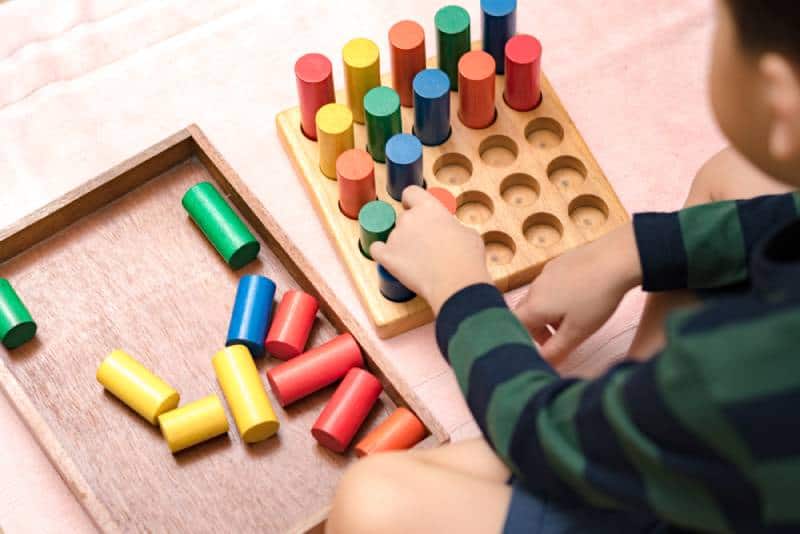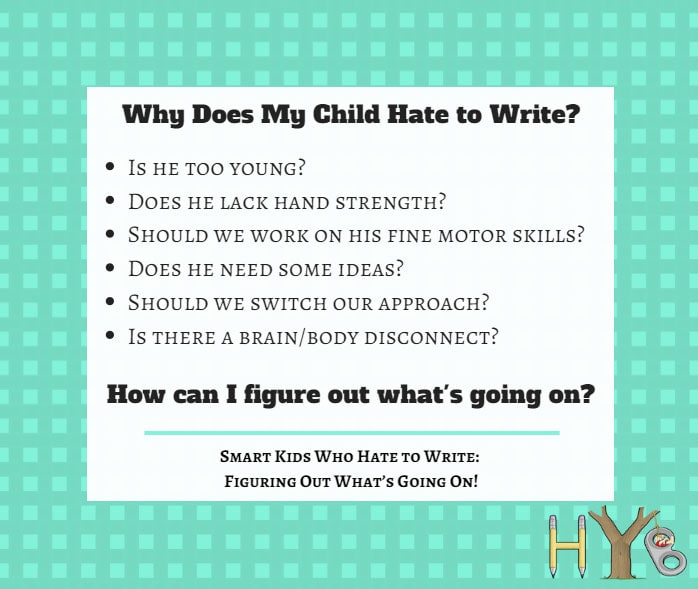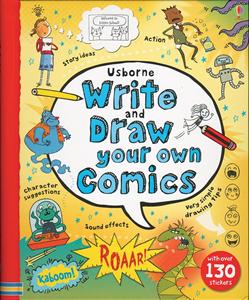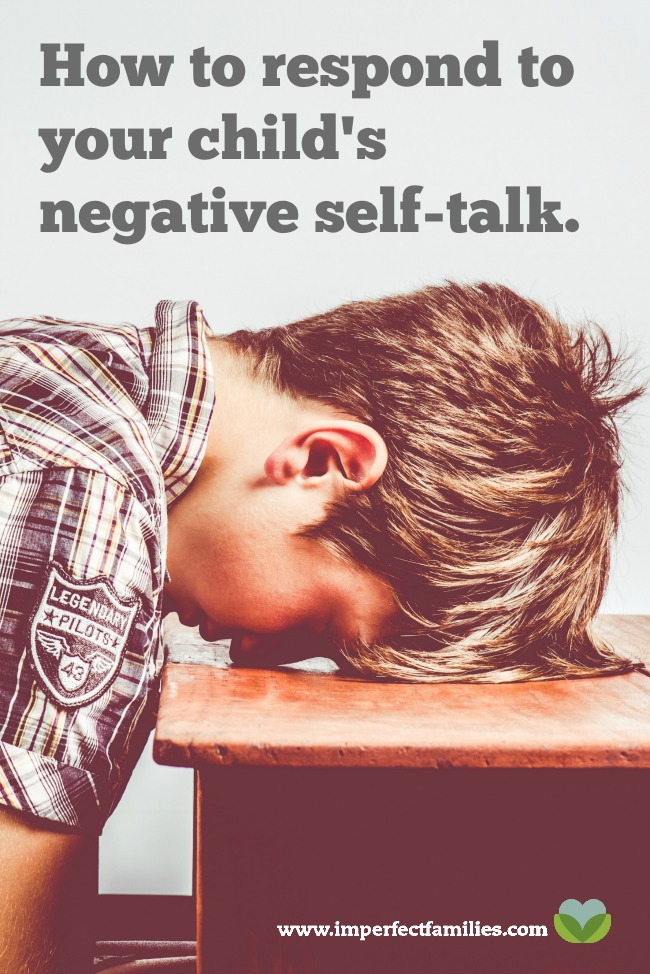ONLINE PARENTING COACH
Help for parents with strong-willed, out-of-control teens and preteens.

Defiant Children Who Refuse To Do Homework: 30 Tips For Parents

- Your child doesn’t understand the work and needs some extra help. It’s possible that your youngster doesn’t want to do his homework because he really needs help. Also, it can be challenging for moms and dads to accept that their youngster might need help with homework, because there is often a stigma attached to kids who need tutoring.
- Your child is addicted to TV and video games. Moms and dads often find it very difficult to limit these activities. But, understand that playing video games and watching TV doesn’t relax a youngster’s brain. In fact, it actually over-stimulates the brain and makes it harder for him to learn and retain information. Too much of watching TV and playing video games contributes to your youngster struggling with school and homework in more ways than one.
- Your child is exhausted from a long day at school. In the last 10 to 20 years, the needs of kids have not changed, however the pace of life has. Most moms and dads are busy and have very little down time, which inevitably means that the youngster ends up with less down time too. He is going to be less likely to be motivated to work when there is chaos all around him.
- Your child is not sleeping enough. Sleep is one of the most under-appreciated needs in our society today. When a child doesn’t get enough sleep, it can cause him to be sick more often, lose focus, and have more emotional issues. Kids often need a great deal more sleep than they usually get.
- Your child is over-booked with other activities. Moms and dads want their youngster to develop skills other than academics. Because of this, they often sign-up their youngster for extracurricular activities (e.g., sports or arts).
- Your child is overwhelmed by your expectations. Moms and dads want their youngster to be well-rounded and to get ahead in life. Along with this comes getting good grades. All these expectations can put a lot of pressure on your youngster and may cause him to become burned-out and want to find an escape.
- instructions are unclear
- neither you nor your youngster can understand the purpose of assignments
- the assignments are often too hard or too easy
- the homework is assigned in uneven amounts
- you can't provide needed supplies or materials
- you can't seem to help your youngster get organized to finish the assignments
- your youngster has missed school and needs to make up assignments
- your youngster refuses to do her assignments, even though you've tried hard to get her to do them
- Do you understand what you're supposed to do?
- What do you need to do to finish the assignment?
- Do you need help in understanding how to do your work?
- Have you ever done any problems like the ones you're supposed to do right now?
- Do you have everything you need to do the assignment?
- Does your answer make sense to you?
- Are you still having problems? Maybe it would help to take a break or have a snack.
- Do you need to review your notes (or reread a chapter in your textbook) before you do the assignment?
- How far have you gotten on the assignment? Let's try to figure out where you're having a problem.
How do I get my over-achieving daughter to slow down?
"I have taken the quiz and surprisingly found that I was a severely over indulgent parent. This angers me because I didn't think...

.png)
- Feb 24, 2022
My child hates school: Tips from a therapist

Every kid complains about school sometimes . But if you’re hearing the words, “I hate school,” every single morning, there may be something more going on. So today, I want to help you figure out why your child dislikes school so much and what you can do about it.
In my therapy practice, I always approach children who hate school with a belief that they can learn to like (or even love) school. It just takes the right support, the right teacher fit, and a plan to address any underlying issues.
And the best part? You don’t need to be a licensed therapist to change your child’s perspective on school. You have everything you need to inspire a love for learning right now. So let’s get started!
Get to the root of the problem
There are a lot of reasons kids don't like school. Teacher/student mismatch, bullies, struggles in certain subjects—the list is endless. So it’s best not to guess.
Do what therapists do and ask your child clarifying questions to get to the root of the problem. Here are some questions to get you started:
· What do you hate about school?
· Is there a class or subject you don’t like?
· Is there a specific person you don't get along with?
· Do you hate school every day, or are there some good days?
· Is there anything about school that you do like?
When your child answers these questions, don’t disagree with them. Make sure to validate their concerns by saying that you understand why they feel that way.
For a child, anger and hate are the easiest ways to express deeper emotions. These clarifying questions will help you figure out if fear, nervousness, separation anxiety, or another strong emotion is the underlying cause of their discomfort at school.
Create a list of solutions
As a parent, we often think we know better than our children how to solve a problem. But as a therapist, I find that my clients often have a pretty good idea how to solve their own problems. So ask your child what would make school better.
At first, you’re likely to hear something like, “Don't make me go to school.” Obviously, that won't work, so dig a little deeper.
A great way to prompt your child for solutions is to ask them, “If you could change one thing about school, what would it be?” Their answer should give you a great starting point for developing solutions.
Whatever you do, don't try to solve the problem yourself. Work together with your child to come up with a few ideas of what could make school better. This list will form the basis of your plan in the next step.
Come up with a plan together
Now that you’ve identified the problems and listed out a few solutions, it’s time to put a plan into action. But don’t do it on your own.
Therapists are trained to empower the client towards change, not give advice or tell the client how to change. The same holds true for parents working with their children. The best way to make sure your child sticks to the plan is to develop it with them.
Go through the list of solutions you both created and try to come up with some concrete steps about how to make progress with each solution. If some of the solutions aren't very realistic, try and advise your child on a compromise.
Be patient. And whatever you do, don’t invalidate their feelings by saying, “You just have to suck it up. Everyone has to go to school.” Say supportive things like, “I know that you are really angry. Let’s try to come up with a few ways to make school better.”
If your child is resistant to discussing a plan, give them some time to think about it and then revisit your plan a few days later.
Make sure your child has someone to talk to
Once you have a plan in place, check in with your child to see how it’s progressing. If the plan isn’t working, and your child is still insistent that they hate school, you may need to consider bringing in additional support.
Children have a lot of emotions and need to have safe spaces to let them out. Just like we have multiple friends and family members who we look to for support, your child may need more perspectives than just yours.
Try to find someone else who they can open up to: A family friend, a teacher, a school counselor, or a therapist .
These other figures can provide different perspectives and can give your child a safe space to express what kinds of support they need to make school more tolerable.
Don't give up! Kids can learn to love school
Hating school can have a negative impact on your child mentally, emotionally, and academically. That’s why it’s so important to address these feelings as soon as they arise. And whatever you do, don't give up!
By talking to your child, brainstorming solutions, developing a plan, and giving them a safe place to express their emotions, you can help them discover (or rediscover) a love for learning that will last a lifetime!
What do you do when your child says they hate school? Let us know in the comments below.
And if you’re looking for a therapist who can help your child navigate the challenges of school, get it touch with us !

Christine Willing, M.Ed., NCSP, is the CEO & founder of Think Happy Live Healthy, a psychological therapy and wellness company in northern Virginia. As a Licensed School Psychologist, she helps kids and families navigate the stress of school with resiliency and positivity. When she’s not seeing patients, Christine enjoys life at the beach, listening to podcasts, and walking her adorable dog, Latte. Follow her on Instagram at thinkhappylivehealthy.
Recent Posts
Understanding the Impact: How to Support Family Members of Individuals with Mental Health Issues
Parenting Support for Peace of Mind
Shifting Perspectives: Making Mental Health a Priority in 2024 with Daytime Therapy Sessions
My kid is in 3rd grade. The school counselor has him attending group therapy with her and has suggested we bribe him for good behavior. The only bribe he has suggested is money. We take away his screen time for weeks at a stretch, which doesn't change his attitude towards school, but at least it is a consequence for his behavior and earning back screen time can be an incentive for good behavior.
He recently "vandalized" the school by using playground chalk provided to the kids at recess and writing "I hate school" on the pavement. I'm sure if he had written something positive, it wouldn't have been considered vandalism, and he would not have earned a referral for his…
My daughter hates going to school. It’s the kids. They can be so cruel. They single her out and say don’t touch her . She’s weird. They call her names like goth girl because she wore black once. If we say something about it to the teachers they do nothing. They say I will talk to their parents. But nothing changes. I don’t believe the teachers when they say they will take care of it. Because of this my daughter no longer trusts them either. I don’t know what to do?
I am sorry your daughter is being mistreated and that her teachers seem to be dismissive towards her. Teachers can be insensitive to their students, sometimes even callous. I encourage you to continue speaking up on behalf of your daughter until someone listens. Try moving up the chain of command, such as speaking to her principal. A school social worker or guidance counselor would be a great professional to get in touch with as they would advocate for your daughter. If that does not work, try going further up by contacting the superintendent and those overseeing the school district. You should also research your state's department of education guidelines and state's anti-bullying laws or policies, especially if you are worried…
My son hates school and until know I've just told him to suck it up. Wish me luck!
#helpinpensacola
I refused to go to school from kindergarten to high school. They tried to force me but I would leave home in the morning with my lunch and simply not go to school, preferring to read by myself.
Why did I loathe school? I suffered from anxiety all my life and I also had severe low self esteem. Because of this I hated amyone in authority including teachers and school staff. I had trouble understanding the lessons and was considered a "slow" kid. Teachers hated me and the feeling was mutual and I also couldn't stand being in classrooms. Being around a large number of other kids stressed me to the max.
So, between the ages of 6 to 11…
Home / Expert Articles / Child Behavior Problems / School & Homework
The Homework Battle: How to Get Children to Do Homework
By debbie pincus, ms lmhc.

Parents often feel it’s their job to get their kids to do well in school. Naturally, you might get anxious about this responsibility as a parent. You might also get nervous about your kids succeeding in life—and homework often becomes the focus of that concern.
But when parents feel it’s their responsibility to get their kids to achieve, they now need something from their children—they need them to do their homework and be a success. I believe this need puts you in a powerless position as a parent because your child doesn’t have to give you what you want.
The battle about homework becomes a battle over control. Your child starts fighting to have more control over the choices in their life, while you feel that your job as a parent is to be in control of things. So you both fight harder, and it turns into a war in your home.
Over the years, I’ve talked to many parents who are in the trenches with their kids, and I’ve seen firsthand that there are many creative ways kids rebel when it comes to schoolwork. Your child might forget to do their homework, do their homework but not hand it in, do it sloppily or carelessly, or not study properly for their test. These are just a few ways that kids try to hold onto the little control they have.
When this starts happening, parents feel more and more out of control, so they punish, nag, threaten, and argue. Some parents stop trying altogether to get their children to do homework. Or, and this is common, parents will over-function for their kids by doing the work for them.
Now the battle is in full swing: reactivity is heightened as anxiety is elevated—and homework gets lost in the shuffle. The hard truth for parents is that you cannot make your children do anything, let alone homework. But what you can do is to set limits, respect their individual choices, and help motivate them to motivate themselves.
You might be thinking to yourself, “You don’t know my child. I can’t motivate him to do anything.” Many parents tell me that their children are not motivated to do their work. I believe that children are motivated—they just may not be motivated the way you’d like them to be. Keep reading for some concrete tips to help you guide them in their work without having to nag, threaten, or fight with them.

Also, keep in mind that if you carry more of the worry, fear, disappointments, and concern than your child does about their work, ask yourself, “What’s wrong with this picture, and how did this happen?” Remember, as long as you carry their concerns, they don’t have to.
Stop the Nightly Fights
The way you can stop fighting with your kids over homework every night is to stop fighting with them tonight. Disengage from the dance. Choose some different steps or decide not to dance at all. Let homework stay where it belongs—between the teacher and the student. Stay focused on your job, which is to help your child do their job. Don’t do it for them.
If you feel frustrated, take a break from helping your child with homework. Your blood pressure on the rise is a no-win for everyone. Take five or ten minutes to calm down, and let your child do the same if you feel a storm brewing.
Create Structure Around Homework Time
Set limits around homework time. Here are a few possibilities that I’ve found to be effective with families:
- Homework is done at the same time each night.
- Homework is done in a public area of your house.
- If grades are failing or falling, take away screen time so your child can focus and have more time to concentrate on their work.
- Make it the rule that weekend activities don’t happen until work is completed. Homework comes first. As James Lehman says, “The weekend doesn’t begin until homework is done.”
Let Your Child Make Their Own Choices
I recommend that your child be free to make their own choices within the parameters you set around schoolwork. You need to back off a bit as a parent. Otherwise, you won’t be helping them with their responsibilities.
If you take too much control over the situation, it will backfire on you by turning into a power struggle. And believe me, you don’t want a power struggle over homework. I’ve seen many kids purposely do poorly just to show their parents who’s in charge. I’ve also seen children who complied to ease their parents’ anxiety, but these same kids never learned to think and make choices for themselves.
Let Your Child Own the Consequences of Their Choices
I’m a big believer in natural consequences when it comes to schoolwork. Within the structure you set up, your child has some choices. They can choose to do their homework or not. And they can choose to do it well and with effort or not. The natural consequences will come from their choices—if they don’t choose to do their work, their grades will drop.
When that happens, you can ask them some honest questions:
“Are you satisfied with how things are going?”
“What do you want to do about your grade situation?”
“How can I be helpful to you?”
Be careful not to be snarky or judgmental. Just ask the question honestly. Show honest concern and try not to show disappointment.
Intervene Without Taking Control
The expectation is that homework is done to the best of your child’s ability. When they stop making an effort, and you see their grades drop, that’s when you invite yourself in. You can say:
“It’s my job to help you do your job better. I’m going to help you set up a plan to help yourself, and I will check in to make sure you’re following it.”
Set up a plan with your child’s input to get them back on their feet. For example, the new rules might be that homework must be done in a public place in your home until they get their grades back up. You and your child might meet with the teacher to discuss disciplinary actions should their grades continue to drop.
In other words, you will help your child get back on track by putting a concrete plan in place. And when you see this change, you can step back out of it. But before that, your child is going to sit in a public space and you’re going to monitor their work.
You’re also checking in more. Depending on your child’s age, you’re making sure that things are checked off before they go out. You’re adding a half-hour of review time for their subjects every day. And then, each day after school, they’re checking with their teacher or going for some extra help.
Remember, this plan is not a punishment—it’s a practical way of helping your child to do their best.
“I Don’t Care about Bad Grades!”
Many parents will say that their kids just don’t care about their grades. My guess is that somewhere inside, they do care. “I don’t care” also becomes part of a power struggle.
In other words, your child is saying, “I’m not going to care because you can’t make me. You don’t own my life.” And they’re right. The truth is, you can’t make them care. Instead, focus on what helps their behavior improve. And focus more on their actions and less on their attitude because it’s the actions that matter the most.
Motivation Comes From Ownership
It’s important to understand that caring and motivation come from ownership. You can help your child be motivated by allowing them to own their life more.
So let them own their disappointment over their grades. Don’t feel it more than they do. Let them choose what they will do or not do about their homework and face the consequences of those choices. Now they will begin to feel ownership, which may lead to caring.
Let them figure out what motivates them, not have them motivated by fear of you. Help guide them, but don’t prevent them from feeling the real-life consequences of bad choices. Think of it this way: it’s better for your child to learn from those consequences at age ten by failing their grade and having to go to summer school than for them to learn at age 25 by losing their job.
When Your Child Has a Learning Disability
I want to note that it’s very important that you check to see that there are no other learning issues around your child’s refusal to do homework. If they’re having difficulty doing the work or are performing below grade-level expectations, they should be tested to rule out any learning disabilities or other concerns.
If there is a learning disability, your child may need more help. For example, some kids need a little more guidance; you may need to sit near your child and help a little more. You can still put structures into place depending on who your child is.

But be careful. Many times, kids with learning disabilities get way too much help and develop what psychologists call learned helplessness . Be sure you’re not over-functioning for your learning disabled child by doing their work for them or filling in answers when they’re capable of thinking through them themselves.
The Difference Between Guidance and Over-Functioning
Your child needs guidance from you, but understand that guidance does not mean doing their spelling homework for them. Rather, it’s helping them review their words. When you cross the line into over-functioning, you take on your child’s work and put their responsibilities on your shoulders. So you want to guide them by helping them edit their book report themselves or helping them take the time to review before a test. Those can be good ways of guiding your child, but anything more than that is taking too much ownership of their work.
If your child asks for help, you can coach them. Suggest that they speak with their teacher on how to be a good student and teach them those communication skills. In other words, show them how to help themselves. So you should not back off altogether—it’s that middle ground that you’re looking for. That’s why I think it’s essential to set up a structure. And within that structure, you expect your child to do what they have to do to be a good student.
Focus on Your Own Goals
When you start over-focusing on your child’s work, pause and think about your own goals and what do you need to get done to achieve those goals. Model your own persistence and perseverance to your child.
Believe In Your Child
I also tell parents to start believing in their children. Don’t keep looking at your child as a fragile creature who can’t do the work. I think we often come to the table with fear and doubt—we think if we don’t help our kids, they’re just not going to do it.
But as much as you say, “I’m just trying to help you,” what your child hears is, “You’re a failure; I don’t believe you can do it on your own.”
Instead, your message should be, “I know you can do it. And I believe in you enough to let you make your own choices and deal with the consequences.”
Related content: What Can I Do When My Child Refuses to Go to School? “My Child Refuses to Do Homework” — How to Stop the Nightly Struggle Over Schoolwork
For more information on the concept of learned helplessness in psychology and behavior, we recommend the following articles:
Psychology Today: Learned Helplessness
VeryWell Mind: What Is Learned Helplessness and Why Does it Happen?
About Debbie Pincus, MS LMHC
For more than 25 years, Debbie has offered compassionate and effective therapy and coaching, helping individuals, couples and parents to heal themselves and their relationships. Debbie is the creator of the Calm Parent AM & PM™ program and is also the author of numerous books for young people on interpersonal relations.
You must log in to leave a comment. Don't have an account? Create one for free!
Frank My daughter Nina just turned 8 (Feb 11). She does not like to do homework one bit. Her teacher gives her homework every day except Friday. She loves Fridays because she doesn't like homework. She always hides her homework under her bed, refuses to do her homework, and in the More morning she tells her teacher "I lost it last night and can't find it!". She feels homework is a waste of time, yes, we all feel that way, but poor Nina needs to learn that homework is important to help you stay smart. She needs to start doing homework. How can I make her 2nd-grade brain know that homework is actually good? Is there a way to make her love, love, LOVE homework? Let me know.
Rebecca Wolfenden, Parent Coach We appreciate you writing in to Empowering Parents and sharing your story. Because we are a website aimed at helping people become more effective parents, we are limited in the advice and suggestions we can give to those outside of a direct parenting role. In addition to the tips in More the article above, it may be helpful to look into local resources to help you develop a plan for addressing these particular issues with your cousins, such as their doctor or their teachers. We wish you the best going forward. Take care.
Rebecca Wolfenden, Parent Coach I hear you. Homework can be a challenging, frustrating time in many families even under the best of circumstances, so you are not alone. When kids struggle with a subject, it can be even more difficult to get assignments completed. Although you didn’t indicate that your daughter More has ADHD, you might find some helpful tips in Why School is Hard for Kids with ADHD—and How You Can Help . Author Anna Stewart outlines techniques that can be useful to help make homework more interesting for kids with a variety of learning challenges in this article. You might also consider checking in with your daughter’s teacher, as s/he might have some additional ideas for engaging your daughter in her homework. Please be sure to write back and let us know how things are going for you and your family. Take care.
So, after reading this I get to say…GREAT…You really do not know my child. We have done 100% of everything listed in this article. In the end, my son has utterly declared “I DON’T CARE, AND I DON’T NEED SCHOOL”. We have attempted a “reward” system as well, and that doesn’t work. He cares about 3 or 4 things. Nintendo DS, Lego, K’Nex, TV…all of those he has lost over the past year. Now he reads, ALL the time. Fine, but that doesn’t get his homework done. It also doesn’t get anything else he needs to do done. We’ve done “task boards”, we’ve done “Reward Systems”, we’ve done the “What is on your list to complete”. EVERYTHING is met with either a full fledged meltdown (think 2 year old…on the floor, kicking and screaming and crying). His IMMEDIATE response to ANYTHING that may interrupt him is “NO” or worse. If something doesn’t go his way directly he throws a fit INSTANTLY, even if the response is “Give me a second” it’s NOW OR I’M DESTROYING SOMETHING. He’s been suspended multiple times for his anger issues, and he’s only 10. Unfortuantely we have no family history as he was adopted from Russia. His “formal” diagnosis are ADHD and Anxiety. I’m thinking there is something much more going on. BTW: He did have an IQ test and that put him at 145 for Spacial and Geometric items, with a 136 for written and language. His composite was 139, which puts him in the genius category, but he’s failing across the board…because he refuses to do the work.
Interesting article and comments. Our son (6th grade) was early diagnosed as ADHD and for the first 3 years of elementary school several of his teachers suggested he might require special education. But then the school counseling staff did a workup and determined that his IQ is 161 and from that point forward his classroom antics were largely tolerated as “eccentric”. He has now moved to middle school (6th grade) and while his classroom participation seems to be satisfactory to all teachers, he has refused to do approximately 65% of his homework so far this school year. We have tried talking with him, reasoning with him, removing screen time, offering cash payments (which he lectures us as being unethical “bribes”), offering trips, offering hobbies and sporting events, and just about anything we can think of. Our other children have all been through the “talented and gifted” programs, but he simply refuses to participate in day-to-day school work. His fall report card was pretty much solid “F” or “O” grades. He may be bored out of his mind, or he may have some other issues. Unfortunately, home schooling is not an option, and neither is one of the $40,000 per year local private schools which may or may not be in a better position to deal with his approach to school. Do “learning centers” work for kids like this? Paying somebody else to force him to do his homework seems like a coward’s solution but I am nearly at the end of my rope! Thanks..
RebeccaW_ParentalSupport 12yokosuka Many parents struggle with staying calm when their child is acting out and screaming, so you are not alone. It tends to be effective to set up a structured time for kids to do their homework and study, and they can earn a privilege if they comply and meet More their responsibilities. What this might look like for your daughter is that if she studies, she can earn her phone that day. If she refuses, and chooses to argue or scream at you instead, then she doesn’t earn her phone that day and has another chance the next day. You can read more about this in https://www.empoweringparents.com/article/end-the-nightly-homework-struggle-5-homework-strategies-that-work-for-kids/. If you are also looking for resources to help you stay calm, I encourage you to check out our articles, blogs, and other resources on https://www.empoweringparents.com/article-categories/parenting-strategies-techniques/calm-parenting/. Please let us know if you have any additional questions. Take care.
Scott carcione
I’m sorry to hear about the challenges you are experiencing with your
son.I also hear the different
approaches you and your ex are taking toward parenting your son.While it would be ideal if you were able to
find common ground, and present a consistent, united response to your son’s
choices, in the end, you can only https://www.empoweringparents.com/article/parenting-after-divorce-9-ways-to-parent-on-your-own-terms/.At
this point, it might be useful to meet with the school to discuss how you can
work together to hold your son accountable for his actions, such as receiving a
poor grade if he refuses to do his work.Janet Lehman discusses this more in https://www.empoweringparents.com/article/when-your-child-has-problems-at-school-6-tips-for-parents/.Take care.
It can be so challenging when your child is acting out at school, yet does
not act that way at home.One strategy I
recommend is talking with your son at home about his behavior at school.During this conversation, I encourage you to
address his choices, and come up with a specific plan for what he can do differently
to follow the rules.I also recommend
working with his teachers, and discussing how you can assist them in helping
your son to follow the rules.You might
find additional useful tips in our article, https://www.empoweringparents.com/article/acting-out-in-school-when-your-child-is-the-class-troublemaker/.Please be sure to write back and let us know
how things are going for you and your son.Take care.
I hear you.It can be so challenging
when your young child is having outbursts like this.A lot of young children tend to act out and
have tantrums when they are experiencing a big transition, such as starting a
new school or adjusting to having a younger sibling, so you are not alone.Something that can be helpful is to set up
clear structure and expectations around homework, as Janet Lehman points out in
https://www.empoweringparents.com/article/my-child-refuses-to-do-homework-heres-how-to-stop-the-struggle/.I also encourage you to set aside some time
for you to have https://www.empoweringparents.com/article/attention-seeking-behavior-in-young-children-dos-and-donts-for-parents/ with your daughter as well.Please be sure to write back and let us know
how things are going for you and your family.Take care.
JoJoSuma I am having the exact same problem with my 9 year old son. His grades are quickly falling and I have no idea why or where to begin with helping him turn things around. When he applies himself he receives score of 80% or higher, and when he doesn't it clearly shows and he receives failing scores. He, too, says that he doesn't do or want to do the work because it is boring, or that he "Forgot" or "lost it". He has started to become a disruption to the class and at this rate I am afraid that he will have to repeat 5th grade. I am also a single parent so my frustration is at an all time high. You are not alone and I wish you and your family the best.
Thank you so much for these tips RebeccaW_ParentalSupport because I SERIOUSLY had nowhere to turn and no clue where to begin. I have cried many nights feeling like I was losing control. I will try your tips and see where things go from here.
It’s not uncommon
for kids to avoid doing homework, chores or other similar tasks. After
all, homework can be boring or difficult, and most people (both kids and adults
alike) tend to prefer activities which are enjoyable or fun. This does
not mean that you cannot address this with your daughter, though.
Something which can be helpful for many families is to set up a structured
homework time, and to require that your daughter complete her homework in order
to earn a privilege later on that evening. You can read about this, and
other tips, in https://www.empoweringparents.com/article/end-the-nightly-homework-struggle-5-homework-strategies-that-work-for-kids/.
Please be sure to write back and let us know how things are going for you and
your daughter. Take care.
Thestruggleisreal I'm just now signing up for these articles, I'm struggling with my 12 year and school work, she just doesn't want to do it, she has no care I'm world to do, she is driving me crazy over not doing, I hate to see her More fail, but I don't know what to do
FamilyMan888
I can hear how much your
daughter’s education means to you, and the additional difficulties you are
facing as a result of her learning disabilities. You make a great point
that you cannot force her to do her work, or get additional help, and I also
understand your concern that getting her teachers to “make” her do these things
at school might create more conflict there as well. As James Lehman
points out in his article, https://www.empoweringparents.com/article/stop-the-blame-game-how-to-teach-your-child-to-stop-making-excuses-and-start-taking-responsibility/, lowering your expectations for your daughter due to her
diagnosis is probably not going to be effective either. Instead, what you
might try is involving her in the https://www.empoweringparents.com/article/the-surprising-reason-for-bad-child-behavior-i-cant-solve-problems/, and asking her what she thinks she needs, and what she will do
differently, to meet classroom expectations. Please be sure to write back
and let us know how things are going for you and your family. Take care.
tvllpit Very effective to kids age of 5, 7, and 11 years old. Thank you for sharing your idea.
Thank you for
your question. You are correct that we recommend setting up a structured
time for kids to do homework, yet not getting into a power struggle with them
if they refuse to do their work during that time. It could be useful to
talk with your 11 year old about what makes it difficult to follow through with
doing homework at that time, and perhaps experimenting with doing homework at
another time to see if that works more effectively. In the end, though,
if your child is simply refusing to do the work, then we recommend giving a
consequence and avoiding a power struggle. Megan Devine details this
process more in her article, https://www.empoweringparents.com/article/end-the-nightly-homework-struggle-5-homework-strategies-that-work-for-kids/.
Please let us know if you have any additional questions. Take care.
jovi916 I'm a mother to a 10 year old 5th grader. Since 3rd grade I've been struggling with homework. That first year, I thought it was just lack of consistency since my children go between mine and dad's house. I tried setting some sort of system up with More the teacher to get back on track, but the teacher said it was the child's responsibility to get the hw done. This year has been esp. Difficult. He stopped doing hw, got an F, so I got on him. He stared turning half done work, but same grades so I still got on him. Grades went up, I loosened up, then he stopped with in school work. Now it's back to not turning anything in, even big projects and presentations. He had never really been allowed to watch tv, but now it's a definite no, I took his Legos away, took him out of sports. Nothing is working. He's basically sitting at the table every night, and all weekend long in order to get caught up with missing assignments. I'm worried, and next year he'll be in middle school. I try setting an example by studying in front of him. My daughter just does her homework and gets good grades. Idk what to do.
I can hear your concern. Academic achievement is important
to most parents and when your children seem to be struggling to complete their
work and get good grades, it can be distressing. Ultimately, your childrens’
school work and grades are their responsibility. You shouldn’t have to quit
your own studies in order to help them improve theirs. The above article gives
some great tips for helping motivate your children to complete their homework.
We do have a couple other articles you may also find useful: https://www.empoweringparents.com/article/10-ways-to-motivate-your-child-to-do-better-in-school/ & https://www.empoweringparents.com/article/sinking-fast-at-school-how-to-help-your-child-stay-afloat/. We appreciate you
writing in and hope you find the information useful. Take care.
RNM I have the exact same issues with my 8 year old. It makes me feel like I'm doing something wrong. He's a smart kid, he just doesn't seem to care to do his homework let alone if he gets a bad grade as a result. He hates reading, but does More very well in spelling and science. Homework is an issue nightly and the teacher pulled me aside today to tell me again how much he talks in class and that now he isn't writing down his assignments and is missing 3 assignments this week. SMH, I don't know what to do anymore other than to coach him (some more) and take away basketball if he doesn't do his homework.
What? "Let homework stay where it belongs—between the teacher and the student. Refuse to get pulled in by the school.." I do not see the logic or benefit of this advice. Homework, by definition, is the responsibility of the student and parent (NOT the teacher). The teacher does not live at the student's home or run the house.
In my opinion, the lack of parental involvement with academics often causes the low student performance evident across the U.S. I do not agree with advocating for even LESS parental involvement.
I completely agree with you. Parental, or adult, engagement at home can be a deal-maker/breaker when it comes to student performance. I subscribe to theories that differ from the author's.
First, if an adult is involved with the child and his activities, then the child will commonly react with "hey, somebody cares about me" leading to an increased sense of self-worth. A sense of caring about one's-self leads to caring about grades and other socially acceptable behaviors (Maslow).
Secondly, I am a FIRM believer in the techniques of behavior modification through positive reinforcement (Karen Pryor). It's up to an invested adult to determine what motivates the student and use those motivators to shape and reinforce desirable behavior such as daily homework completion. A classroom teacher has too many students and too little time to apply this theory.
Letting a child sink or swim by himself is a bad idea. Children have only one childhood; there are no do-overs.
And yes, children are work.
Many experience similar feelings of being at fault when
their child fails, so, you’re not alone. Truth of the matter is, allowing your
child to experience natural consequences of their actions by allowing them to
fail gives them the opportunity to look at themselves and change their
behavior. We have a couple articles I think you may find helpful: When You Should Let Your Child Fail: The Benefits of Natural Consequences & 5 Natural Consequences You Should Let Your Child Face . Good luck to you and
your family moving forward. Take care.
hao hao It is so true, we can't control our children's home. It is their responsibility. But they don't care it. What can we do it?
indusreepradeep
How great it is that you want to help your brother be more
productive with his homework. He’s lucky to have a sibling who cares about him
and wants him to be successful. Because we are a website aimed at helping
parents develop better ways of managing acting out behavior, we are limited in
the advice we can offer you as his sibling. There is a website that may be able
to offer you some suggestions. http://www.yourlifeyourvoice.org/
is a website aimed at helping teens and young adults figure out ways of dealing
with challenges they may be facing in their lives. They offer several ways of
getting support, such as by e-mail or text, through an online forum and chat,
and also a call in helpline. You can check out what they have to offer at http://www.yourlifeyourvoice.org/. Good luck
to you and your family moving forward. Take care.
Kathleenann indusreepradeep
Thank you so much for your humble support....
It sounds like you have done a lot
of work to try to help your daughter achieve her educational goals, and it’s
normal to feel frustrated when she does not seem to be putting in the same
amount of effort. It can be useful to keep your focus on whether your
daughter is doing her work, and to keep that separate from whether she “cares”
about doing her work. Ultimately, it is up to your daughter to do her
work, regardless of how she appears to feel about it. To that end, we
recommend working with the various local supports you have in place, such as
her therapists and others on her IEP team, to talk about what could be useful
to motivate your daughter to do her school work. Because individuals with
autism can vary greatly with their abilities, it’s going to be more effective
to work closely with the professionals who are familiar with your daughter’s
strengths and level of functioning in order to develop a plan to address this
issue. Thank you so much for writing in; we wish you and your daughter
all the best as you continue to address her difficulties with school.
is there a blog for parents that went to Therapeutic boarding schooling for their adolescent?
Responses to questions posted on EmpoweringParents.com are not intended to replace qualified medical or mental health assessments. We cannot diagnose disorders or offer recommendations on which treatment plan is best for your family. Please seek the support of local resources as needed. If you need immediate assistance, or if you and your family are in crisis, please contact a qualified mental health provider in your area, or contact your statewide crisis hotline.
We value your opinions and encourage you to add your comments to this discussion. We ask that you refrain from discussing topics of a political or religious nature. Unfortunately, it's not possible for us to respond to every question posted on our website.
- 1. "My Child Refuses to Do Homework" — How to Stop the Nightly Struggle Over Schoolwork
- 2. What to Do When Your Child or Teen is Suspended or Expelled From School
- 3. Acting Out in School: When Your Child is the Class Troublemaker
- 4. Young Kids in School: Help for the Top 4 Behavior Problems
- 5. When Your Child Has Problems at School: 6 Tips for Parents
- 140,000+ Subscribers Subscribe
- 50,000+ Fans Follow
- 10,000+ Followers Follow
- 6,000+ Followers Follow
Disrespect... defiance... backtalk... lack of motivation...
Frustrated and exhausted by your child's behavior?
Get your FREE Personal Parenting Plan today.
Does your child exhibit angry outbursts , such as tantrums, lashing out, punching walls, and throwing things?
Would you like to learn about how to use consequences more effectively?
Backtalk... complaints... arguments... attitude... just plain ignoring you
Do you struggle with disrespect or verbal abuse from your child?
Has your child been diagnosed with oppositional defiant disorder (ODD)?
Or does your child exhibit a consistent and severe pattern of anger, irritability, arguing, defiance, and vindictiveness toward you or other authority figures?
Intimidation... aggression... physical abuse and violence ...
Are you concerned that your child may physically hurt you or others?
You must select at least one category to create your Personal Parenting Plan:
We're just about finished! Create a secure account with Empowering Parents to access your Personal Parenting Plan.
Blog Post > “My Child Refuses to Do Homework” Here’s How to Stop the Struggle
- “My Child Refuses to Do Homework” Here’s How to Stop the Struggle

Over the past few weeks I have had many frustrated parents in my office discussing issues that they were having with their child refusing to do homework. Most of the parents I talked to described homework taking hours and ending with everyone frustrated and upset. This is a nightly occurrence and both the child and parent struggle with a solution. The following article from www.empoweringparents.com by Janet Lehman, MSW has some helpful hints that might just end this nightly struggle. — Megan Yaraschuk, M.Ed., PCC
“My Child Refuses to Do Homework” Here’s How to Stop the Struggle by Janet Lehman, MSW
Do you get sucked into a fight over homework with your child every night? So many parents tell me that this is one of their top struggles with their kids. If you’re dealing with this now, you probably dread saying the words, “Okay, time to do your homework,” because you know what’s coming next — screaming, stomping, book-throwing and slammed doors. Or it might simply be hours of dealing with your complaining, whining or non-compliant child or teen who just hates to do the work. Even though you reason, lecture, nag and yell, nothing seems to change — and each night turns into a battle with no victors.
Trust me, I get it. I have to admit that dealing with my son’s homework was one of my least favorite experiences as a parent. It felt overwhelming to me; often, I just wasn’t equipped to offer the help he needed. Our son struggled with a learning disability, which made the work and the amount of time required feel unending at times — both to him and to us. My husband James was much better at helping him, so he took on this responsibility — but even with this division of labor, we had to make adjustments to our schedules, our lives and our expectations to make sure our son turned it in on time.
They Don’t Call It “Homework” for Nothing
Here’s something I learned along the way: homework is work, and there’s no getting around that fact. It’s a chore for both the child and parent. It’s important to understand that schoolwork is often the most difficult part of your child’s busy schedule. Helping your kids manage it despite all the other activities they would rather be doing can be challenging at best. Remember that it’s your child’s job to go to school and learn (including getting homework completed) and your job to provide for your kids, run the house and offer love and guidance to your children.
I know from experience how easy it is to get caught up in power struggles over homework. These struggles begin for several reasons, but the most common one is because your child would rather be relaxing, playing, texting with friends, or doing almost anything else. Know that if you deal with their frustration by losing it and getting mad out of your own frustration, it will be a losing battle. Some kids are even able to manipulate parents this way, because they know the battle over homework may result in your giving up on expectations to get it done.
Here’s the truth: letting your child off the hook for their work will ultimately create problems in their lives. Instead, focus on the fact that as a parent, you need to teach your child how to follow through on expectations and be accountable. All the more reason to take control and make homework just another part of your child’s daily responsibilities.
Here’s my advice for reducing homework hassles in your home:
- Try to stay calm : Try to avoid losing your cool and yelling and screaming, arguing about the right answer for the math problem or the right way to do the geography quiz, ignoring the homework altogether or being inconsistent with what you expect, being overly critical, or giving up and just doing the work for your child. The first step is to try to stay as calm as you can. If you get frustrated and start yelling and screaming at your child, this sets a negative tone and is likely not going to help them get the work done.
- Set clear expectation around homework time and responsibilities. Let your children know that you expect them to get the work done on time and to the best of their abilities; the most important thing is that they try their best. Set aside the same time each afternoon or evening for them to do their work. Understand that kids are all different in how they feel about and approach homework. Some may find English easy, but get really frustrated with math. Another may be a science whiz, but have no patience when it comes to writing. It’s important to know your child: their strengths and struggles, and how they learn. Some kids need small breaks throughout a session, while others may need the task to be broken down into smaller pieces and then varied. While there are some children and teens who are self-directed and able to complete homework without assistance, most require some type of guidance and/or monitoring, depending on their age. This makes it especially challenging for parents, because it means you need to perform different functions with each child you have, depending on their needs.
- Have a relationship with your child’s teacher. Try your best to build a good relationship with your child’s teacher. Start off at the beginning of the school year and stay in touch as the year progresses. Your relationship with your child’s teachers will pay off during the good times as well as the challenging times.
- Play the parental role most useful to your child. Some kids need a coach; others need a “monitor,” while others need more hands-on guidance to complete tasks. Try to match your help with what is most needed. Remember also that your child is doing the homework as a school assignment. The teacher will ultimately be the judge of how good or bad, correct or incorrect the work is. You’re not responsible for the work itself, your responsibility is to guide your child. You can always make suggestions, but ultimately it’s your child’s responsibility to do his or her assignments, and the teacher’s job to grade them.
- Keep activities similar with all your kids. If you have several kids, have them all do similar activities during homework time. Even if one child has less homework or finishes more quickly, they need to be respectful of their siblings by doing quiet, non-disruptive activities.
- Set up a structured time and place for homework. Choose a time and place and stick to a routine as much as possible. Consider adding in break times for kids with shorter attention spans. They might work on their spelling words for 15 minutes, and then take a 5 minute break, for example. Offer snacks to keep kids “fueled” for the work. Keep the house generally quiet for everyone during homework time—turn off the TV (or at least keep the volume down). Make sure your kids have a “space” for doing their work. For some kids this will mean a large work space like a kitchen table to spread out their papers and books, and for others it may mean a small quiet area in their room.
- Start early: Start early with your young children setting up “homework” time, even if it’s just some quiet reading time each night. This helps get them used to the expectation of doing some “homework” each night and will pay off as the actual work gets harder and more time-consuming.
- Offer “Hurdle Help”: Some kids need what we call “hurdle help.” Let’s say your child has big test to study for, but can’t seem to get started. You can help out by running through the first few problems, for example, until he gets the hang of it. Or you might brainstorm with your teen to help her choose a topic for the big paper she has to write. You’re not doing the work for them, rather, you’re helping them get going so the task doesn’t seem so daunting.
- Choose the best person for the job: If you are part of a couple, consider that one of you might be better at “teaching” and then let that person take on the homework monitoring responsibilities. It will likely help the routine become more consistent and effective for your child. If you are a single parent, you might have a friend or family member (an older cousin who’s good at math, or a neighbor who’s a writer, for example) who would consider helping your child from time to time.
- Offer empathy and support. If your child is really struggling, give them some support and guidance and show some empathy. Kids are expected to do some difficult work, and your child may sincerely be struggling with it. If you have a child who is really having a hard time, it’s important to have communication with the teacher to see if this is typical for all kids, or if it’s unique to your child. If your child also has these problems in class, know that there are different approaches to helping them learn that can be useful. The teacher may recommend some testing to see if there are learning problems. While this can be hard to hear as a parent – as if something is wrong with your child – it’s important to find out how your child learns best and what your teacher and you can do to support their learning style.
- Use positive reinforcement and incentives: It’s always important to reinforce positive behavior, and that may mean offering some kind of incentive for completing homework or getting good grades. Most kids get personal satisfaction out of getting good grades and completing their work, and that’s what we’re aiming for. But, it’s also helpful to offer some incentives to encourage them. Rather than money, I would recommend offering rewarding activities for your child’s academic successes. This could include going shopping for some “goodie” the child has really wanted, renting their favorite movie and having “movie night” at home, or other ways of spending special time with a parent. These things can become more meaningful than money for most kids and they get to experience their parent in a loving, supportive and reinforcing role.
Most kids will never really “enjoy” homework, and for some it will always be a struggle. Our children all have different strengths and abilities, and while some may never be excellent students, they might be great workers, talented artists, or thoughtful builders. While it would be easier if all children were self-motivated students who came home, sat down and dug into their homework, this just isn’t going to be the case with most kids. As James often said to parents, “We need to learn to parent the child we have – not the child we’d like them to be.” Our role is to guide our children, support them through the challenging tasks, and teach them about personal responsibility.
Recent Posts
- Help with Parenting after Divorce
- Sitting Still
- Guilt: The Good and the Toxic
- “I’m bored!” Kids in the Summer Part I: Screen time
- August 2018
- September 2017
- January 2017
- December 2016
- November 2016
- October 2016
- September 2016
- August 2016
- February 2016
- December 2015
- November 2015
- B. Zoppetti
- Co-Parenting
- M. Yaraschuk
- sensory processing issues
- T. Tadlock-Smith
- Uncategorized
- W. Shackleford
- Ways We Can Help
- Ways You Can Help Others
- Ways You Can Help Yourself

FindYourMomTribe » Parenting
20 Things to Try if Your Kid Hates Homeschooling
By Author Ivana Davies
Posted on Last updated: August 26, 2021

“But I don’t wanna do homeschool!”
Yep. I feel you, mama. I’ve heard it more times than I can count. I know what it’s like to have a child push back when it’s time to get to work.
If you’re reading this article, you might have:
- A reluctant learner
- A child who hates doing homework
- A child who hates homeschooling
Or, a child who refuses to do their school work
We started homeschooling four years ago with my daughter when she was in kindergarten.
My oldest daughter is a very “go with the flow” type of kid. She loves learning and has no problem (for the most part) sitting down to do her assignments.
This year, we started homeschooling my son. He just turned six and he also loves learning…but…he dreaded doing homeschool.
I’ve had to get really creative to help motivate him to happily complete his assignments.
Now he’s thriving and has learned SO much more. While we do have our tears some days, most of the time homeschool is no longer a battle.
So I’m spilling my secrets and giving you…
20 ideas for how to help your child who hates homeschooling
1. use a rewards system.
- Includes (36) charts and (700) stickers per pack
- These Eureka student reward charts and stickers feature all your pup pals from 101 Dalmatians!
- Teachers can track their students progress in a way thats easy and fun for them to understand!
- Children can set goals and take responsibility in a fun way.
Prices pulled from the Amazon Product Advertising API on:
Product prices and availability are accurate as of the date/time indicated and are subject to change. Any price and availability information displayed on [relevant Amazon Site(s), as applicable] at the time of purchase will apply to the purchase of this product.
I know rewards can be a controversial subject, but for us, it works.
We have a sticker chart hanging on the wall.
For every day that my son completes his work happily, he gets a sticker that he can exchange for small prizes.
2. Incorporate toys
- 3 packs of themed Disney/Pixar Cars 3 micro mini metal vehicles
- Includes an exclusive car
- Iconic details and wheels that roll for authentic action
- The full assortment makes a unique collection and dynamic display
- Collect them all! Each 3-pack sold separately, subject to availability
What’s your child’s favorite toy? My son loves Cars 3 right now.
So, Lightning McQueen, Mater, Jackson Storm, and a bunch of other characters often drop by to “watch” him do his homeschool work.
We also use cars to do simple math problems in the place of counting bears.
3. Incorporate food

I’ll often say to my son, “Are you hungry? Let’s have a snack together before we start!”
He loves food, so he’s always up for a snack! We also use cereal to solve math problems!
4. Practice writing on things other than paper
- Big magnetic drawing screen
- Easy-slide eraser magically cleans screen
- Includes 4 shape stampers - square, triangle, circle and star
- Pen and stampers store securely on the Doodle Pro Slim
- Durable frame with easy-carry handle
My son doesn’t love working on his handwriting in a workbook or on lined paper.
But, he does love writing and drawing on a dry erase board and on a Magna Doodle!
You can also practice writing words and letters in shaving cream or in a tray of sprinkles!
5. Easy, Hard, Easy

Initially, I thought it’d be best to do the hard stuff first to get it out of the way. However, that isn’t always the best for every child.
Starting with a “fun” subject can get them warmed up and ready to work on more challenging subjects.
Ending with another “fun” subject gives them something to look forward to.
Every child has subjects they like and subjects they dislike. My son loves math and science. So, we typically start with math and end with science.
6. YouTube is your friend!

Almost every kid I know l-o-v-e-s YouTube. Whenever something is particularly challenging for one of my kids, I scour YouTube for a fun video on the topic.
YouTube can also be an excellent motivator.
For example, I’ll say to my son, “After we’ve finished all our assignments, we can watch a YouTube video about scorpions.”
(He loves animals and we often watch short video clips about various animals! That counts as science, right?!)
7. Have a set routine

I know life gets busy, but kids really thrive on routines.
Try to start your homeschool or homework at the same time each day.
This will help manage their expectations and create consistency.
8. Break it up

Little kids aren’t able to sit still and focus for long periods of time.
Sometimes it may be helpful to do some work in the morning, some after lunch, and some in the evening.
Breaking up the day is definitely worth a try!
9. Write with something other than a pencil
- Not intended for use on school chalkboards
- White Chalk Sticks are made to be used on childrens chalkboards.
- This Set Includes * Crayola White Chalk 12 Pack * Crayola Color Chalk 12 Pack
Does your child resist writing?
Try letting them write with ink pens, markers, colored pencils, painting with a paintbrush, or using chalk.
Variety is key!
10. No long breaks

Honestly, I go back and forth on this one.
On one hand, I feel like we all need a break sometimes.
But on the other hand, whenever my kids have a long break, (Christmas, Easter, summer, etc.) it is SO hard for them to get back in the groove.
Right now we are experimenting with taking no more than 1-2 days off at a time.
11. Pick 3 things

Don’t try to do every single subject in one day.
For reluctant learners, choose three or four things that are really important to you. Focus on doing those things well and getting those accomplished.
Anything else is a bonus!
Right now, we are focusing on math, handwriting, and reading. I
f we get nothing else accomplished in the school day, I can be happy that we completed those three things.
12. Get up and move
- Perfect trampoline for toddlers to burn off energy
- Features large jumping surface and handle bar for stability
- Plastic and metal combination
- Trampoline is for indoor use only. Age- 3 to 6 years. Ground to top of handle bar- 34.00 inch H. Jumping surface to top of handle bar- 26.25 inch H
When my son starts getting antsy or begins whining, I know it’s time to get up and move.
We like doing jumping jacks together or playing a quick game of freeze tag before we get back to work!
(Bonus! I just worked off all those calories from cereal math, haha!)
13. Don’t call it “work” or “school”

Speaking of work, I try to avoid using the words “school work” and “homework”.
What kid likes work? Instead, use words like “lessons” or “learning” to avoid triggering a protest.
14. Switch your curriculum
- Created specifically for Grade 1 writing
- Used by Special Needs Therapist to help children learn to write neatly and legibly
- From the award winning Abilitations line of Special Needs Toys and Resources
- Easy to learn steps for printing
Don’t feel like you MUST complete a curriculum if it just isn’t working for you.
I know, you spent a ton of money on it. I know your friends love it. But, honestly, if it isn’t working, it may be time to try something new.
We tried THREE different reading curriculums this year before we found one we really liked.
15. Play a game
- Besides playing games, another use of dominoes is the domino show, which involves standing them on end in long lines so that when the first tile is toppled, it topples the second, which topples the third, etc., resulting in all of the tiles falling
- Domino sets are made of synthetic materials, ABS and other phenolics resins,many sets approximate the look and feel of ivory.Tin box packaging, 28 dominoes double 6 color Dot
Whenever you can, make up a silly game to go along with your lesson.
My kids LOVE games.
One simple thing we do is play hide-and-go-seek with our sight words.
I hide sight word flash cards all over the room and my son has to find them and tell me what they say. So fun!
You can also play educational games like Don’t Wake Daddy, Uno, or Dominos.
16. Hands-on

Most kids learn by doing! Earlier this year, we learned about volume.
My son was so stumped with this particular math problem involving apples and apple juice.
So, I pulled out my dusty ‘ole juicier and we juiced apples to figure out the answer. He was SO excited to do this and he still talks about that learning experience!
17. Joke around

Laughter is my son’s love language.
I often tell him silly jokes to break any tension that creeps up. We love to laugh together!
(Wanna hear my favorite joke for kids?! Q: What did one snowman say to the other snowman? A: <Sniff, sniff> It smells like carrots! Hahaha).
18. Go outside

On days when the weather is nice, we like to sit outside to do our lessons.
A change of scenery is so fun! (I loved it when our professors let us do this in college!)
19. Make your homeschool space inviting

- 24 Different Laminated Learning Posters: Including shapes, time, numbers 1-10, numbers 1-100, transportation, construction zone, dinosaur, ball game, alphabet, fruits, vegetables, farm, emotions, the five senses, my body, good manners, wild animals, weather, months of the year, days of the week, seasons, colors, opposites and solar system.
- Features: Each poster is 12 x 16.5 inch, made of 300g coated paper, each side covered with PET film for added extra durability, waterproof and tear-resistant. Each poster comes with 4 glue dots, allowing you to use them more conveniently.
Before we started school this year, I went to the dollar tree and grabbed a bunch of colorful posters, charts, and decorations.
I surprised the kids by making our entryway into a cute homeschool area.
My son said, “I thought school was gonna be boring, but now I changed my mind! It actually looks fun!” #winning
20. Connect with your child emotionally

I don’t know about you, but I am always tempted to multi-task while homeschooling.
I check my phone, I get up to put dishes away, I fold socks… I’m a chronic multi-tasker.
But I’ve noticed that when I take the time to put away my phone and all the other responsibilities, focusing solely on my son, he is much more motivated.
When I take the time to look into his eyes, ruffle his hair, be truly interested in what he’s saying and connect with him on an emotional level, the power struggles dissolve.
Don’t forget to affirm your child, too. “I see how hard you’re working!”
READ NEXT: Must-Have Supplies for Homeschooling Preschool
Like this post? Please share or pin it for later. You can also stay in the loop and follow us on Facebook, Instagram and Pinterest .

We love honesty! Find Your Mom Tribe is an Amazon Associate and we earn from qualifying purchases through affiliate links at no extra cost to you. Please see our full Amazon Affiliate disclosure for more information.
- Getting Pregnant
- Registry Builder
- Baby Products
- Birth Clubs
- See all in Community
- Ovulation Calculator
- How To Get Pregnant
- How To Get Pregnant Fast
- Ovulation Discharge
- Implantation Bleeding
- Ovulation Symptoms
- Pregnancy Symptoms
- Am I Pregnant?
- Pregnancy Tests
- See all in Getting Pregnant
- Due Date Calculator
- Pregnancy Week by Week
- Pregnant Sex
- Weight Gain Tracker
- Signs of Labor
- Morning Sickness
- COVID Vaccine and Pregnancy
- Fetal Weight Chart
- Fetal Development
- Pregnancy Discharge
- Find Out Baby Gender
- Chinese Gender Predictor
- See all in Pregnancy
- Baby Name Generator
- Top Baby Names 2023
- Top Baby Names 2024
- How to Pick a Baby Name
- Most Popular Baby Names
- Baby Names by Letter
- Gender Neutral Names
- Unique Boy Names
- Unique Girl Names
- Top baby names by year
- See all in Baby Names
- Baby Development
- Baby Feeding Guide
- Newborn Sleep
- When Babies Roll Over
- First-Year Baby Costs Calculator
- Postpartum Health
- Baby Poop Chart
- See all in Baby
- Average Weight & Height
- Autism Signs
- Child Growth Chart
- Night Terrors
- Moving from Crib to Bed
- Toddler Feeding Guide
- Potty Training
- Bathing and Grooming
- See all in Toddler
- Height Predictor
- Potty Training: Boys
- Potty training: Girls
- How Much Sleep? (Ages 3+)
- Ready for Preschool?
- Thumb-Sucking
- Gross Motor Skills
- Napping (Ages 2 to 3)
- See all in Child
- Photos: Rashes & Skin Conditions
- Symptom Checker
- Vaccine Scheduler
- Reducing a Fever
- Acetaminophen Dosage Chart
- Constipation in Babies
- Ear Infection Symptoms
- Head Lice 101
- See all in Health
- Second Pregnancy
- Daycare Costs
- Family Finance
- Stay-At-Home Parents
- Breastfeeding Positions
- See all in Family
- Baby Sleep Training
- Preparing For Baby
- My Custom Checklist
- My Registries
- Take the Quiz
- Best Baby Products
- Best Breast Pump
- Best Convertible Car Seat
- Best Infant Car Seat
- Best Baby Bottle
- Best Baby Monitor
- Best Stroller
- Best Diapers
- Best Baby Carrier
- Best Diaper Bag
- Best Highchair
- See all in Baby Products
- Why Pregnant Belly Feels Tight
- Early Signs of Twins
- Teas During Pregnancy
- Baby Head Circumference Chart
- How Many Months Pregnant Am I
- What is a Rainbow Baby
- Braxton Hicks Contractions
- HCG Levels By Week
- When to Take a Pregnancy Test
- Am I Pregnant
- Why is Poop Green
- Can Pregnant Women Eat Shrimp
- Insemination
- UTI During Pregnancy
- Vitamin D Drops
- Best Baby Forumla
- Postpartum Depression
- Low Progesterone During Pregnancy
- Baby Shower
- Baby Shower Games
My child says she hates school. What should I do? (K to 3)
Was this article helpful?
Guide to great playdates for big kids

Can I move my child to a different classroom? (K to 3)

Can I move my child to a different classroom?

What to do when you are unhappy with a public school teacher (K to 3)
Where to go next.

- Create new account
- Reset your password
Register and get FREE resources and activities
Ready to unlock all our resources?
What to do when your child hates school

Monday morning. You are rushing to pack the kids' lunches and get them out of the house on time. But the youngest is ill. Again. You've taken him to the doctor, who can't seem to find the any reason for the mysterious flu-like symptoms. You’re beginning to suspect that your six year old's amateur dramatics – the tummy clutching and the shivers – can only be attributed to one simple fact: your child hates school.
Parentline Plus’s Sue Ormesher advises parents to first of all find out what is making their child unhappy: “It’s important to show that you want to understand your child's problems as they will be more likely to open up to you.”

Boost Your Child's Learning Today!
- Start your child on a tailored learning programme
- Get weekly English & maths resources sent direct to your inbox
- Keep your child's learning on track

Not sure what’s wrong? Observe them at school
Educational reforms have made it simpler for parents to be directly involved in their children's education.
Mum-of-two Suzie Walsh from Manchester found that her five-year-old son went through a phase of hating school, so she shadowed him in the classroom for a week to see his interaction with his teacher and his peers first-hand. “I noticed that the teacher was not giving him a chance to speak and, as if in retaliation, he would become disruptive,” she says, “So I was able to see first-hand where things were going wrong and once I talked to my son about this and to the head teacher, we were able to make sure that he felt listened to.”
School refusal
School refusal isn’t just not wanting to go to school, it’s debilitating form of anxiety that affects around one per cent of children. It’s more common in boys, and tends to peak between ages five and six, and 11 and 12. If you think your child may be suffering from school refusal, find out more about it and read our action plan to decide what your next steps will be.
What if it’s bullying?
For some children, their hatred of school has nothing to do with their teacher but with unpopularity or, more seriously, bullying .
Chartered educational psychologist Tim Francis runs an online advice service for parents . He suggests parents observe their children during playtime or lunch breaks: “You tend to find that children with no friends are the ones who hang around the wire fence. You can help your child to better their social skills by talking to a teacher about implementing a buddy scheme, where more active children are assigned to those who don't find it as easy to interact. You can help them with their social skills training at home as well. These are easily available on the internet. And encourage your child to bring classmates home for dinner or for sleepovers.”
“If bullying is the problem, arrange a meeting at the school and make sure your child is included,” suggests Sue. “It helps to write down all the questions you have and the points you want to make. Try to keep copies of any letters you send and a diary of where you have gone for help and information.”
Teenagers and school
It may be the case, as it is with some teenagers, that there are no major problems but your child is going through the stage of thinking that school isn't ‘cool'.
“First of all, be aware that this is a very normal phase in any teenager’s development,” says Tim. “But in most cases parents can solve this problem by putting their foot down and telling their child that they find their refusal to attend school unacceptable. Alternatively you can emphasise the fact that unless they put the hard work in they will be unable to fulfil their dream of being a doctor or a policeman or whatever it is.”

Give your child a headstart
- FREE articles & expert information
- FREE resources & activities
- FREE homework help
More like this


Smart Kids Who Hate to Write: Figuring Out What’s Going On!
Overview: does your child hate writing does he refuse to write or struggle with the act of writing it could be a physical issue., it could be a maturity issue. or it could be a disconnect between your child’s fingers and his brain., learn straightforward ways to change your approach so that your child will no longer hate to write.
I’ve always known that my boys were smart.
They started talking before they were one-year-old. They started learning to read when they were three.
They’ve always been able to come up with intricate stories in their heads, carry on wonderful conversations, think logically, and remember many facts.
The one thing they have always struggled with in our homeschool was that they didn’t want to write anything down. Can you relate?
Does your child hate to write?!?

This is a big deal! Writing is one of those skills that you use in all of your subjects.
- We typically teach spelling by having kids write their words several times.
- We teach lots of subjects by having the child fill out a workbook page to see what they remember.
- We give tests where we ask students to write things down.
- Even notebooking and lapbooking require the child to write out what they remember about certain subjects.
My boys could talk to me endlessly about what they remembered, but as soon as I would ask them to write anything down, they would freeze up and balk at having to write even a short sentence or two.
My Child Refuses to Write
Sometimes the issue is that we’re trying to get our kids to write when they are simply not ready.
We expect children who are ages 4-6 to color and to learn to write their letters, but sometimes they aren’t mature enough to do these things, yet. This is especially true for boys who can lag behind in this area.
The best thing to do in this circumstance is to put some of the writing aside and create learning experiences which don’t involve a paper and pencil . Give them time and allow them to complete most of their work orally.

Physically Struggling with Writing
Sometimes the issue is that our kids haven’t yet developed the fine motor skills necessary to write.
This is the case in older and older children, as technology takes a more prominent place in the lives of our kids. They are simply not doing the same types of activities which develop our hand muscles as much as children did in generations past.
If you suspect this is the case, having your child do some fun, fine motor activities to build up the strength in his fingers will make a tremendous difference in helping him to struggle less with writing.
Some kids who physically struggle to write with a pencil will do much better using a pen. It takes less strength to make a mark with a pen than it does with a pencil.
These kids also do well learning how to type at a young age. My boys tried many typing programs geared for kids, but they didn’t become touch typists until they went through the Mavis Beacon program .

Do Their Finger Joints Hyperextend?
A reader told me about another physical issue that can cause writing difficulty for children. If a child has hypermobile joints they don’t know to tell us because they assume everyone has the same experience.
If their finger joints hyperextend, they will experience pain in the pincer grip that doesn’t exist for non-hypermobile children.
This pain will quickly cause them to avoid writing, especially extended periods of it. It’s also common for these children to have orthostatic intolerance, which leads to fast fatigue.
The easy fix for hyperextended finger joints is ring-splints which allow the full range of normal motion but prevent the hyperextension. You can read more about this issue here .
Not Interested in Writing
Not all adults enjoy writing.
In fact, quite a few adults avoid writing like the plague. They certainly wouldn’t want to sit down and write a book report after they finish a book.
And they wouldn’t choose to spend their free time writing stories or essays about their life.
Guess what?!? Your child may never enjoy writing. That doesn’t mean that they can’t write. Or that they won’t learn how to write well. But it may not be something they choose to do.
For these kids, it’s important to do what we can to help them at least learn how to write to the best of their ability.
- 4 Tips to Help Your Reluctant Writer – Tips for kids who simply are not interested in writing
- Teaching Writing to Older Kids – Ways to help older kids who are still trying to master the skill of writing
- 7 Simple Ways to Help Kids Overcome Writer’s Block – Ideas to help kids who are struggling to know what to write
Sometimes simply giving our children the space to write about subjects that interest THEM will be enough to help them overcome their writing issues. Also, taking away the looming threat that you will grade their work may help as well.
Over time, they may even decide that they love to tell stories and they want to become authors as my oldest son has. You can read all about his experience in this post co-written by him called How to Motivate a Child to Write .

Is There a Disconnect Between Your Child’s Fingers and His Brain?
The information contained on this website is for informational purposes only. it is not intended to be a substitute for professional medical advice, diagnosis, or treatment..
If your child is learning but refuses to write or seems like he has to work really hard to write anything down, we can wonder if it’s laziness or a character issue. I know I struggled with this with my own sons.
And I wondered if they would ever grow out of it.
Fortunately, a few years ago, I finally learned the answers to my questions. While attending our state’s homeschool convention, I attended a workshop taught by an amazing woman named Dianne Craft.
She has a master’s degree in special education, she’s a certified nutritional health professional, and she was a homeschool mom.
She taught several workshops this weekend; but the first one that caught my eye was called Smart Kids Who Hate to Write . I knew I needed to attend this workshop.
I was just hoping that I might learn one or two things that could give my boys some relief in this area.

Why Is Writing Such a Struggle for Some Kids?
Dianne said that writing is an activity in which we should use both hemispheres of our brain.
Once we learn how to do something, after 6 months, it is supposed to transfer over to the automatic processing part of our brain. If children are struggling to write, often it is because this doesn’t happen.
For these kids, they continue having to think about the letters they’re forming and the words they’re writing instead of that being an automatic process.

She gave the analogy of learning to drive a car. She reminded us of what an arduous task this first was when we first started to learn.
We had to think about where our feet should be and how to push the different pedals.
We had to think about when to use our turn signals and which lane to drive in.
We had to remember to check behind, around, and in front of us before changing lanes.
There were so many things to think about that we had to use all of our focus to drive. We couldn’t talk at the same time, and it wasn’t enjoyable.
In fact, it was quite stressful.
That was the case until we had practiced long enough that the various processes necessary for us to drive transferred over to our automatic hemisphere. Then driving became enjoyable.
We could carry on a conversation while driving.
We could sing along with the radio.
It was a whole different ballgame. We could turn our head to look at the sights.
It became a relaxing experience! (Driving on country roads, anyway.)
This is what some of our kids feel like when they are writing. Instead of being able to write and think about anything else, they have to focus very hard just to write anything down.
This takes a tremendous amount of energy and focus and having to write anything down zaps much of their strength.

Sometimes this problem is caused by your child having a mixed dominance.
Normally, if your child is right-handed, their right eye will be dominant. If they are left-handed, their left eye will be dominant.
For some kids, this isn’t the case.
One of my sons is left-handed but his right eye is dominant. This can cause confusion in the brain while he is writing and can cause the writing process to be stopped from entering the automatic hemisphere.
Sometimes a child’s brain is hard-wired for left-handedness even though they are right-handed or vice versa. This can also cause major stress in their writing system.
How can you tell if there is stress in your child’s writing system?
- If they hate to write or take a long time to do so
- If they have a mixed dominance
- If they occasionally reverse their letters or numbers after age 7
- If they are right-handed but they make the letter ‘O’ clockwise
- If they form some letters from bottom to top
- If their copy work takes a long time and is labor intensive
- If they do their math problems in their head to avoid writing them down
- If their writing looks sloppy
- If they tell great stories orally but write very little down
- If they have a hard time lining up their math problems
- If they press very hard when writing
- If they are a teenager but they avoid writing at all costs
- If they mix their capital and small letters when writing
How Do I Help My Child?
If your child is exhibiting even one or two of these symptoms, then he or she would benefit from going through some Brain Integration Therapy . This sounds complicated, but it’s actually very simple and inexpensive and it’s something you can do at home with your child.
This therapy was developed by Dr. Geteman and Dr. Paul Dennison. This exercise not only helps your child to overcome their dysgraphia, but it will also improve their hand-eye coordination and their awareness of their body in space.
This will help them perform better in sports and to write with ease.
The Brain Integration Therapy is simple, yet it involves lots of steps. I can’t detail how to do them in this article because I don’t want to take the chance of missing a step and making you waste your time.
I recommend that you purchase the following products by Dianne Craft:
- Brain Integration Therapy Manual – $58.00
- Smart Kids Who Hate to Write – $39.99
I purchased these products myself and am thrilled with what I have discovered so far. Her Brain Integration Therapy Manual is easy to understand and easy to follow.
The Smart Kids Who Hate to Write DVD includes the entire workshop that I attended, which explains the reasoning behind this therapy. It also includes examples of kids who are a variety of ages doing the Writing Eight exercise, which is the main therapy that she recommends for overcoming dysgraphia (see picture above.)
There are so many other exercises which are beneficial in her brain training manual, however, that I would HIGHLY recommend you purchase that as well.
If your child is struggling to write, purchasing these items will be a small price to pay to see their suffering end in this area. I can’t tell you how relieved I was after finding this program!
My boys were also very excited to start this therapy.
Dianne says that your child might consider these exercises boring, and that’s true. If your child is struggling, however, you may find that they will be excited to do exercises that might help them overcome something which has been causing them grief for many years.
Dianne says that you will start to see results after a few months; but that you need to do the therapy for 6 months to a year so that the brain is permanently trained. Dianne said that in her over 30 years of teaching this to children, she has never met a child she wasn’t able to help.
My boys did all of Dianne’s brain training for about seven months, and it did help them. They stopped reversing letters and writing things from bottom to top.
We still chose to let them type most of their assignments, but after going through this therapy, it gave them the ability to write more efficiently.
I think the exercises also helped one of my sons with his balance and coordination. It was worth our time!
If you suspect your child has a disconnect between his fingers and his brain, do yourself and your children a favor. Get Dianne’s material. Read some of the articles on her website . Check out her sample audio and video files.
I think you’ll be as happy as I am that you took the time to make writing easier for your children.
Fun Writing Resources
If you are looking for resources to make learning to writing more enjoyable for your child, I have some really fantastic suggestions for you!

Make Your Own Comics (Ages 6+) – Making comics is a great, non-intimidating way to motivate kids to start writing. This awesome activity pad is jam-packed with everything children need to design their very own comic strips. Create comics about swashbuckling pirates, a space adventure, a rogue robot rampage, and many more. With lots of hints and tips on drawing characters, showing emotions, setting the scene, and adding speech bubbles and sound effects.

My Year of Writing (Ages 8 and up) – A year’s worth of imaginative prompts for word associations, stories, jokes, and more help young writers discover their own personal creativity, fire up their imaginations, and hone their writing skills.

Write and Draw Your Own Comics (Ages 10+) – This is for kids who want to tell stories but who gravitate toward pictures. It has a mix of partially drawn comics and blank panels with intro comics as instructions – lots of space for kids to draw their own comics, but they’re never left fully alone with a scary blank page.

Write and Design Your Own Magazines (Ages 10+) – This book explains how to make homemade magazines or ‘zines’ from scratch. With step-by-step instructions and tips on everything from making comics or writing advice columns to printing magazines and finding readers.

Write Your Own Scripts (Ages 10+) – This book will help you write all kinds of scripts–scary ones, exciting ones, and hilariously silly ones. It’s full of tips and ideas that will help you every step of the way–from planning and writing to putting on your very own shows.

Write Your Own Poems (Ages 10+) – A write-in book filled with a wide range of poetry writing activities, tips, and advice to inspire a new generation of young poets. This book aims to make poetry accessible and exciting for beginners.

A Year in my Life (Ages 9-13) – A kids’ journal quite unlike any other, this beautifully illustrated book invites children to record a year of their life by filling in the 365 quirky drawing and writing activities—one for every day of the year. Activities are fun, quick—so no excuse to miss any days!—and imaginatively offbeat, so kids might be invited to “Draw a scene that happened today, but give the people animal heads” or “Write every feeling you remember feeling today” or simply just “Sum up today in a single word.” At the end of the 365 days, children will end up with an amusing, creative, and offbeat record of a year in their life to treasure in years to come.
Question: Does your child hate to write? Do you have any other tips you could share? Please leave a comment below.
90 thoughts on “Smart Kids Who Hate to Write: Figuring Out What’s Going On!”
My son is 6 years old and I noticed he hates writing. He is very smart. While I was reading the first part of your article, I felt you are talking about me and my son. This is very helpful. I will get the material and help my child. Thank you very much
Thanks for letting me know, Enam. It’s encouraging to me when I’m able to help someone else. I hope the materials help your son! Take care and have a great night!
Hi My son is 3 years 8 months now. He cant write after several time practice…not even a single alphabet properly and without help. We don’t feel he is not interested …he tries but couldn’t understand how to write
He can recognize all alphabets and number 1to10 but can’t write and I also feel sometimes he doesn’t remember things very easily Can anyone help.
That’s incredibly young to have him writing. Some kids can handle it but it isn’t common. There are different skills involved with recognizing the alphabet versus writing it out. If he’s recognizing all of the letters and numbers 1-10, that’s wonderful for his age. Just keep learning fun for him and try not to stress about it. 🙂
Thank you for this! My 7 year old is having writing issues. He started Prek with nice handwriting. His writing was good at KG then 1st grade came and he just got really messy? Does that mean its dysgraphia? I compare his writings from the Summer before he started 1st grade and wrote well just bigger letters and did spacing. Now he wants to write fast and everything looks messy. When he writes slow he writes nice. I am just trying to figure out if this is considered dysgraphia. If you don’t mind telling me what kind of brain exercise you did..maybe some examples before I buy the book? Appreciate it. Thanks so much!
If his handwriting USED to be neat and then it got messy, I would guess that he’s just in more of a hurry to be done writing and to get on to other things. Dysgraphia has to do with certain connections in the brain not being made – so signals aren’t crossing over from the left hemisphere to the right hemisphere as easily as they should be. But if that were the case, your son wouldn’t have been able to write neatly before. And if he’s still capable of writing neatly when he slows down then he probably just feels like he has better things to do. Boys don’t normally like to sit still for long periods of time – especially at that age. I hope that helps! 🙂
Thank you for this article. What I might add is to find projects where they can go after their true passions. My kid loves wolves, so she researched found out the biggest issues they had, and wrote a letter to her favorite author if he could write a children’s book about wolves to impact young kids to love wolves. She absolutely loved to do this, as it had meaning. Plus she did it with other children. I let my child work together with others over http://www.TheStory-Weavers.com – this is where mine really changed from pushing her to writing to her loving it.
Great suggestion, Geraldine!
You may have just saved us! Thanks for sharing this. Both my boys have similar struggles with physical writing which makes homeschool a challenge for us. Thanks again.
You’re welcome. Glad I could help! 🙂
We just got out of a meeting with our 7 year olds teacher…she is really pushing getting him to write and he hates writing! We have spent hours on spelling homework that could have been done in 10 minutes…tears, tantrums, etc. this is good information! Hopefully we can figure something out over the summer so he is more prepared for 2nd grade!
Yes, I hope you’re able to use some of these tips. 🙂
Some students do better with cursive, however, One of the best spelling techniques is to print (manuscript) each word. Then, do it 2-4 times underneath one another. This way The child can catch his mistake as each letter should be under one another! Cursive writing does not make it easy to catch errors. Another way is to break the word up into syllables (or parts that the child says) each on their own line. These may be done next to one another in a vertical manner with space between. End with the correct spelling underneath. Some words like colonel can be broken up in a manner and pronounced so that the child can see all the correct letters even though they are not syllabicated or pronounced that way. Ex. Co-lone-l or col-one-l each on their own line and total word on last line.
If the child does not have to write out his spelling words but only learn them here is a good technique that kids love. Look at the word, say the word, spell the word, say the word again. Then, clap hands twice slap thighs twice (or desk top) stomp feet each one, clap hands twice again. For some reason the physical activity helps it stay in the brain. Plus, kids need to move. That’s how they grow. Have fun and don’t forget to smile and laugh. I always let my kids tell jokes before their tests. It releases pent-up energy, the laughter sends good hormones through their body and it relaxes them. If they are taking major tests, ask the teacher if they’re allowed to suck on a peppermint lifesaver. This is proven to excite the brain and help the memory. I also did jumping jacks, running in place, hands up and touch toes, any kind of little physical activity to help the circulation and the oxygen to flow in between subjects or the tests.
TY! TY! TY! Our son is 10 and I knew enough to know that his penmanship issues had to be the symptom of something else but basic education degrees don’t cover this sort of thing. And our daughter has Down syndrome so she is, of course, delayed and is truly ambidextrous. Getting anything on paper around here is painful. I feel like a prayer was just answered! Book ordered and I paid an extra $3 to get it here faster.
I’m so glad to hear that, Amy. I hope this info helps your kiddos a bunch! 🙂
Thank you for your honesty in being so open about your boys & their writing problems. I have 2 sons, the older of whom I’m currently home-schooling. He’s twice exceptional, identified as Gifted w/ a high IQ & also having ADD (with a lot of the emotional, sensory, physical issues that are part & parcel of this diagnosis)!
I have learned so much from my son & his challenges with writing. I can share some of my lessons. His pre-school teacher identified him as delayed in fine-motor skills. We tried everything to help him strengthen his little muscles, but it didn’t really work. Fast forward a few yrs (summer between 2nd & 3rd grade), we took him to a Developmental Pediatrician (Melmed Center, AZ) who was so supportive of our decision to medicate or not to medicate! Regardless, she said, he’ll need lots of individualized care, educational objectives & therapies. We walked away armed with a lot of solid recommendations especially resources for educating ourselves to the iceberg that is AD/HD (we only see the top part of it in terms of hyperactivity or impulsivity).
We found a private Occupational Therapy clinic, specifically Scribbles2Script (AZ) specializing in writing problems (I never even knew that Occupational Therapists had different specialization! Actually, I never even knew what an OT was, lol!). Meagan did an extensive evaluation. It takes about 15 different muscle movements for the physical act of writing to take place. My son was not able to do half of them. Right away, she fitted him for a Pediatric thumb splint, recommended a Slant board (to write on), and gave him some Jumbo pencil grips. Like a sports athelete, when my son donned these items, he was ready to write! As he started on homework that day, he casually comments, “It doesn’t hurt anymore!”. I was beside myself. “So, it used to be physically painful for you write? How come you never told me that… We’ve been having discussions about writing for so many years !!!”
Meagan explained that usually kids won’t dwell on the physical pain that writing is causing them because they don’t know any different. They assume everyone feels the same pain when writing, or that is what the process of writing entails: physical pain! So, we corrected that wrongful assumption for my son. He was under strict orders to stop writing if he felt physical pain & consult with the OT. We saw the OT for 7 months about 1xwk. She did so many fun & interesting fine-motor excercises with him & gave wkly hmwk to learn & improve & then, finally gain speed in his writing! This time, the excercises worked because they were done under the care of a trained medical professional who paid attention to the issue of physical pain. During the course of therapy, my son (just for fun) started using scissors to make crafts, showed interest in different writing utensils (markers, colored pencils, etc), and became more confident about controlling his butter fingers during everyday household tasks!
To all those moms whose kid is great with Legos: My biggest question to Megan was, “But this kid spends hours making and breaking his Lego inventions?” to which she replied, “It only takes about 1 of those 15 muscle movements to play with Legos!”.
I’m so thankful to God for what He taught me & humbled by what I do not know!”
Wow! Thanks so much for taking the time to leave this comment. I think it has to potential to help LOTS of kids. I’m going to go research those 15 muscles right now. 🙂
Hi Amena, where did you get your thumb splint. Can I buy it anywhere? Can you provide the name and type the one your son had? Thank you in advace for your help. Thanks for your input, so helpful. I’m happy I stumbled upon it.
Btw, I’m getting no compensation from companies I mentioned. I’m so grateful to them for their help & guidance & answering my millions of questions with such kindness, I want to mention them!
Another item that was added to my son’s writing “equipment” was a Pencil weight. This was done for sensory issues. He said he couldn’t really “feel” his pencil, but rather that seemed to be “floating”. The OT was able to understand this from the wavy/ shaky/ trembling lines she saw him making especially with his cursive connections! His explanation came later, after we asked him, “What is your feeling/ sensation while you are writing?”
My son is now writing without most of his aids. Although, if he writes more than a couple of words (which he still doesn’t really want to– I’ll explain why down below), his hand starts hurting again. Therefore, we keep the equipment ready & nearby in case we need it.
Another aspect of his treatment at Scribbles2Script was the Vision therapy. Upon assessment with a 2nd OT who specialized in Vision therapy & a Developmental Optometrist, my son’s vision was diagnosed as having choppy tracking, inability for both eyes to work as a team, etc. There had been signs & clues all along including lots of eye rubbing especially after periods of reading, constantly walking in front of the shopping cart whenever we were at the store, etc. I just never knew this was all because of Vision problems. Moms, keep in mind that vision problems do not mean kids need glasses. And they are usually not diagnosed at the regular Eye doctors. In fact, many Opthomologists consider Vision therapy to be bogus or controversial at best. However, more & more research is available to show that it is an effective & superior means of treatment (than surgery or even patching for hours for problem such as cross-eye).
After all that therapy, spelling homework that should have taken 10 minutes did NOT take hours or produce tears BUT writing was still something my son tried to avoid. My son had made major progress from refusing to picking up a pencil to easily writing words & short (I mean VERY short sentences). I attributes this behavior to anxiety or writing-related trauma for having been made to write all those years when it was physically hurting him. But, was there something more?
As we said goodbye to Megan & her awesome team of ladies, I was told that my son’s remaining hesitation to write had to do more with his ADD than anything else. His thoughts were firing off faster than he could capture them on paper (kind of like popping popcorn).
After much trial & error during homeschooling to further work on his writing, I finally got my son an appointment with Speech & Language therapists (Anita Werner’s clinic in AZ). This has been the HUGEST blessing ever! After 4 hours of intensive testing (divided over 2 days), my son was diagnosed with Expressive Language Disorder & Secondary Writing Disorder! I never would have guesses in a million years because this boy can talk a whole lot, be very expressive & precise, and generally communicates pretty well, according to me (his mom). Obviously, I have a biased perspective! My son has started therapy with a Speech & Language Therapist… I’m so excited because it seems that this IS going to deal with the remaining writing difficulties we still are dealing with. The therapist never promised a cure, but said that my son would walk away from working with her with enough strategies, formulas, concepts, practice& problem-solving skills to be able to make his away around & easily navigate through any writing problems !!!
Believe me, these private companies, pioneering in practice research & treatment, have been life-savers for us! Although we pay lots for them in monetary, time, & mileage value, they are worth the cost in the long-run!
Moms, please don’t rely exclusively on school personnel as my son was interviewed by both an OT & a Speech Therapist at his public school! Neither one of those therapists, nor the IEP team of professionals found anything of concern in the case of my son. Their main yardstick was his excellent standardized test scores (in Reading & Math, areas in which he naturally excels due to his Giftedness!). All other issues were ignored. It’s sad, but what happened to the 3 R’s = Arithmetic, Reading & WRITING ?!?
I’ll end this really long post by once again thanking God for all the gifts He has bestowed on my family through His guidance, His resources & His hope!
I have a nephew who was helped by Vision Therapy… Thanks again for all of the detail. I hope it will help lots of other parents who are struggling to find solutions for their kiddos.
Thank you so much for your candor. You have described my recent experiences. I tried getting the school to help with no avail. Luckily my son’s doctor took my concerns seriously and has made the referrals I am hoping and praying to get answers for my son
I just read the above bullet points to my almost 14 year old son. He was laughing by the end, then said, “Have they been following me around?” The symptoms list described him to a T. We homeschooled for years but by Jr a High he needed more help than I am trained for. Our local, rural jr high/highschool has 100 kids total. We are comfortable with him schooling there, but would love to overcome the problem not just deal with it. I’m going to show this to my husband, and will surely be ordering!
My son is 7 years old he hates so much writing and reading. i dont understand something why he doesnt like to study if i guide him hes sleepong and very slow writing specially his reading the book very slow. he really likes to play like biking, playing his cars. omg please I need your advise what ca I do to make him matured. I make everything but Im sorry Because im not a perfect mom.
Your son is still very young. He probably wonders why you don’t like to play with cars. 😉 There’s a bunch of advice on my site about teaching boys and meeting them where they’re at. One post you might find particularly helpful would be How to Teach Your Son When He Won’t Sit Still . Hang in there! It will get better. Maturity takes time.
Wow!! This is my son to a T. He also was motor delayed as a younger child and although the pediatrician say he has “caught up” is still all butter fingers and will agonize over a sentence for what seems like forever until he figures out how to capture his thought in the fewest possible words that then get agonizingly set on paper. He has everything on that list except the teenage thing, since he is only 10. We have looked into vision therapy for his older sister, but I never thought it would help a writing issue. We will have to re-evaluate. Thanks for this article!!
You’re welcome, Melody! I’m glad I could help. FYI – I’ve also got posts about helping to develop gross motor and fine motor skills. If you feel that your son is still struggling (especially with fine motor) that could also be part of his reluctance to write. You may want to have him practice some of these skills as well. 🙂
My three sons are grown but I wish I’d known some of this info when they were young as all three hated to write. The third son took keyboarding in seventh grade to avoid having to write reports etc. but he did go on to become a doctor of medicine (radiologist.) Even my daughter could have benefited from this book so I may order it for her children as they are the right age and my grandson also hates to have to write anything out but can text and use the computer better than I can! Thanks for this information.
It’s so encouraging to hear from people who have gone before and whose children have succeeded in spite of their struggles. Thanks so much for sharing your story!!!
After searching on Amazon I did find the manual for $58, but the link above still took me to a page listing it for $200.
Thanks for the heads up, Natalie. I fixed the links! 🙂
Hi there! So you are still seeing improvements in your sons’ handwriting and writing abilities? I am just now starting to see if this is what our son also struggles with. He’s gifted and tests very well, just has terrible. sloppy handwriting, spacing problems, indention problems, trouble lining up math problems, and writes about half of his letters and numbers bottom to top (or in one continuous stroke; doesn’t like to pick up his pencil mid-letter).
Dianne’s materials are pricey and so I want to make sure I am not self-diagnosing him incorrectly. Talking to my homeschool advisor to make sure I should’t look into getting him professionally evaluated first. But he’s in 5th grade and I don’t want to persist any further. I’m shocked and frustrated that I didn’t realize this was such a big issue until now (we’ve homeschooled since day one). Thanks in advance!
Awww, your homeschool advisor?!? You’re so sweet. 🙂
Yes, we really are seeing improvements. Dianne’s techniques helped my boys with their writing – especially forming letters correctly from top to bottom and from left to right – and I believe they also helped one of my sons to become more coordinated with playing basketball as well. My boys still don’t like to physically write stuff down – but it doesn’t seem to be quite as “painful” for them as it used to be. They still prefer typing papers as opposed to writing them down, though. I think that’s from being born in our technological age. They just feel more comfortable behind a keyboard than they do with a pad of paper and a pencil.
I think that if you compare the cost of Diane’s materials with the cost of a professional evaluation, you’ll find that they’re quite reasonable. Maybe get them now and work with your son from now until fall and then see if you think he still needs to be evaluated or if he’s on the right track. 🙂
For trouble lining up math problems, try using graph paper. (This was even suggested in a major math curriculum for upper elementary, so I wouldn’t worry too much even though he is in 5th grade.) Maybe next year he will be ready to try math without the graph paper. Another thing you could do is have him turn a spiral notebook sideways; then they will have columns to write in.
I just wanted to say something about vision therapy… I can see why it is controversial. We paid over $2400 for about a year of weekly visits (which wasn’t easy for us) and had great hopes that it would help a number of issues, because we were promised this. Personally, I would’ve been thrilled if only a few issues were improved, including the struggles with writing. We went to a facility that came highly recommended, and all the therapists there seemed to be very good at what they do. Their initial evaluation diagnosed my daughter with a slight convergence insufficiency and she needed help with tracking. They convinced me, of course.
Honestly, I can’t say I see any difference, at all, in anything, after so much effort and time (over a year) put into this therapy.
Might I advise parents to evaluate more than one possible issue before choosing a therapy route? You will definitely run into multiple diagnoses, because when you go to ANY place to evaluate an issue, they will definitely find reasons why you need their services. But the smart parent will evaluate more than one possible cause, and in being able to see what each therapy offers based on specific need, and (so important) finding out how progress will be determined AND SHOWN regularly, a parent can make a better decision/choice of where to put their time and money.
With this vision therapy, I never knew what they were really working on… it was always sort of vague, even my daughter had a hard time telling me… prism glasses and such… chasing a dot, placing pegs… and they never had any way to visually show me what specific progress was actually being accomplished. Be wise and careful with your time and money. Parents of children with struggles are already emotionally and financially taxed enough; they don’t need to sign up for time consuming therapies that are costly and show little to zero results. Do lots of research first, and make sure it’s very clear to the therapist (who may be casually promising you so much) that you will be wanting to see measurable results routinely and/or often. If you see a twitch in their eye or they look away – even for a moment – or hum and haw some generic response, keep looking for the right solution.
Good to know, Angela. Wow, that’s a lot of money to spend not to see any difference. That’s another reason I like Dianne Craft’s methods. You do them at home with your child so you know exactly what’s happening and they’re a tiny fraction of the cost!
Can you tell me which publication is best to start with? or do I need both? I have 2 boys that I suspect have dysgraphia (1st grade and 6th). I just finished paying thousands of dollars for vision therapy for my 6th grader with “meh” results. And now my younger son’s teacher is recommending vision therapy too for the same issues.
Another note, my children are allergic to Milk and Eggs and the other just eggs. Do these books discuss the absence of nutrients contributing to the dysgraphia? I suspect Omega 3’s which their diet (without eggs and seldom eating fish) is lacking or completely void of. Thank you!
If you want to start with only one resource, I would start with the Brain Integration Therapy Manual.
By the way, these resources don’t talk about nutritional deficiencies but Dianne has other resources which do. I wrote a post about that called Is Your Son’s Brain Starving? that you should definitely read!!! She talks about Omega 3’s and the importance of this nutrient – especially for our boys.
I hope that post helps you as well! It certainly made a difference for my boys.
Hi, I read your article. I have 2 kids, i homeschool with them, and a notice for 2 years that they hate writing. They have 11,and 9 years. I wish i could buy yje dvd, and the manual….but unfortunatly they don t shipp to Romania the country we live. thank you for the article….it really helped me.
I’m glad it helped you, Ramona. Hopefully, you’ll be able to find some other resources that will help you as well. 🙂
thank you so much. i thought i was the problem. that he just don’t like doing homework with me. but most of the symptoms you listed i’ve noticed in my son. now i have a different approach to try.
You’re welcome. I hope this helps your son!!! 🙂
My bright, homeschooled 9 year old hates to write but he loves to draw! does that mean that hes unlikely to have disgraphia? Thanks Beth.
I think that writing and drawing would be using different sides of his brain, since writing is more analytical and drawing is more creative. But I’m not 100% sure on that. I would contact Dianne Craft and see if she can give you more insights for your son! 🙂
Hi. My 5 yrs old son is non verbal and autistic but he takes instructions very well Can this book help him?
You should really ask Dianne that question. She is the expert on whether or not this book will help your son. Her website is http://www.diannecraft.org . I hope she’s able to help you! 🙂
What a great article. I have a 13 year old daughter with dysgraphia and I was starting to think our 6 year old might also have it as he really struggles with writing and remembering what the letters are and how they are supposed to be written. I will look into these resources. Cheers!
Thanks, Sarah! I hope they help your kids. 🙂
I first noticed my 7 year old son’s trouble with writing when he moved from preschool to grade 1. What was until then limited to just one or two words in preschool suddenly changed to long sentences and paragraphs. This is Indian schooling system which can be quite demanding. Soon my son developed school aversion simply because school meant writing. I had read this blog post earlier too and that helped me discuss the issue with his pediatrician who suggested talking to his teachers. I did that and asked them to be patient with his writing, giving get him more time to finish his work. That has helped.
However, he still finds something else very difficult: drawing, especially the ones that involve human figures. To make matters worse, my husband and father in law are artists themselves insist that the kid learn to draw. They introduce him to human figures that requires him to maintain certain ratios and proportions for body parts and the kid struggles in achieving it. Its painful for him. I have tried explaining to the husband the kid’s trouble with writing and drawing but in vain.
What should I do? Is this also symptoms of dysgraphia?
I’m not sure. It may just be that he’s being pushed faster than he is ready. And it’s actually fairly common for boys to dislike sitting still and writing, even if they don’t suffer from dysgraphia.
I cannot thank you enough for this article! After seeing this article, I looked at Dianne’s website and other sites as well, and I believe two of my three children have dysgraphia. My middle child (11) is mixed dominant (right side dominant in everything except writing). He is a smart kid who hates to write! All of his development since preschool makes sense now. He also has always complained about getting hurt (tripping, bumping into things), and I am excited that these exercises might help with his spatial awareness too. I wish I had known this sooner, but am glad I can address it now. My six year old struggles with pencil grip, pressing hard, writing letters from bottom to top, letter reversal, laborious writing, etc. I plan to test him for mixed dominance as well. I will be purchasing Dianne’s DVD and manual and am so relieves to be able to help them. I’m so glad your article popped up in my search!
You’re welcome, Heather! I’m glad I was able to point you in the right direction. 🙂
Hi, I am Karthika from India. My 4 -yr old doesn’t like writing. She asks me to hold her hands while writing alphabets and numbers. She writes 1, 2 and some capital letters. What should i do?
She’s really young and possibly not mature enough to handle writing, yet. You can try to work on her fine motor skills to better prepare her hand muscles and hand-eye coordination for writing. I’ve written a blog post about fine motor skills to give you some ideas.
I am Krithiga from India. My 9 year old daughter brings all her work incomplete from school and even hate to write exams fully. She hardly attend any details Q&A but she knows the answer very well. She understand the lessons excellent as if even in midnight she can answer any Q. ONly problem is writing. I am really worried as she is moving higher classes.Kindly let me know how to handle this.
You can always try out Dianne Craft’s methods that I describe in this blog post. What do her teachers think? If she’s in school, they should have some ideas for ways to help her.
Wow! Do you think both the manual and the cds are needed ? My son was diagnosed by an OT with dysgraphia. We use a home based charter school but apart fro then sending ya some work books we haven’t had a lot of help.
This sounds hopeful
I purchased both but you may be able to get away with just getting the manual. The DVD pretty much shows kids using the figure 8 technique, which was helpful to me since I wasn’t familiar with it at all. But you may be able to figure it out by watching a YouTube video which shows that part of the process. I hope it helps!!!
My Son is 4years old and he hates writing.he cannot follow the lines. He started reading when he was just 2 years old. Is it normal for his age to be uninterested in writing and colouring?
Yes, it’s completely normal. The fine motor skills which are required for writing normally lag behind a bit in boys.
This is encouraging to read! We are beginning Kindergarten with my five year old, and while she is incredibly bright and has a large vocabulary, I can’t get her to write anything down without a struggle and tears. I’m thinking that maybe she’s still a bit young to have developed the fine motor skills. So, we will work on some different motor skill activities, and do more orally or with stamps. Thanks for sharing this information.
Yes, I think that’s a wise plan. Keep it light and fun and she’ll likely be ready before you know it! 🙂
Hello I’m Grace from the Philippines I came across to this blog cause I’m seeking information to help my son. His is 6 years and now in his first grade in elementary. Just like you all said, my son also refuses to write in school. But at home he writes with me and he knows letters too. But I noticed that he somethings write letter differently. I want to purchase the book so i can give him this Therapy. I can you tell me where can i buy this books?
Either click on the blue, bolded links above in the blog post or you can go to Dianne Craft’s website (I also have that bolded as well.) I hope that helps! 🙂
If you are unsure of how to purchase items on Amazon and have them shipped to the Philippines, this blog post should help you! 🙂
http://www.borderlinx.com/PH/en/pages/buy-on-amazon-com-and-ship-to-philippines/
Oh my gosh, I wish I had found this years ago. My 16 year old has always avoided writing. He was tagged as TAG in grade school yet his teachers would get so frustrated when he understood the material but wouldn’t write anything down. He does math in his head but won’t write out the problem work, avoids essays and would rather get a failing grade than do note taking. He isn’t off to a good start in 10th grade with F’s in classes that he should be getting A’s in. Is it too late??
It’s never too late. I would definitely check with Dianne at http://www.diannecraft.org or just get the materials and give them a try. Our brains can retrain themselves even into adulthood. I hope this helps him!
My child is 6yrs old hate to writer at school teacher called us now and again.
I’m so sorry. When your child is in school you don’t have as much flexibility to work with him/her as you do as a homeschooler. I hope the teacher gives you encouragement and advice for things to try.
I have just started the figure eights exercises with my son. I have some technical questions about the process– how slowly does he need to go? I remember hearing that too fast will not help the brain, but just HOW slowly does he need to go? It’s taking him forever just to do half of the alphabet in one sitting. Also, I wrote down that we can listen to classical music while we do it — do you know if we can listen to music with words? Or an audio book, or me reading?? I want this to be effective, but also would like to make it less boring than it is :-). Thanks!
I’m not sure. I would go to http://www.diannecraft.org and ask her for the details. I think that may have been covered in her DVD instructions but I watched it a while back and I can’t remember. Dianne is super helpful, though, and I would think she would be happy to answer your question! 🙂
My son is six years old, he has difficulties in learning, he knows how to write few letters, but he refuses to do his own homework. yesterday he had a homework to write letter T, he wrote on a scratch paper but he refused to write it on his note book. I spend two and half hours trying to convince him to write it down, but he refused, today morning he told me that there were a girl who beats him in school, I told his school teacher, do you think this is the reason for his refusal?
Oh my goodness! I’m sure that doesn’t help. What did his teacher say? Are they going to do something to protect your son? Sounds like he’s under a lot of stress. So sad! Give him lots of love, hugs, and reassurance and be sure to be his advocate to keep him safe.
Thank you for this article. My 6 year old chil stopped writing 2 years ago. He had the misfortune of meeting a JK teacher who had issues with single parents. After Children services got involved, I found out he was being dragged to a corner and forced to write apology letters to the teacher for not having his father in his life. I never thought these kind of things could happen in 2016. It has been two years, but he still thinks of writing as punishment and I don’t know how to help him get out of this mind set. I still can’t run up to him to give him a hug, because he freezes and thinks he is going to get punished. I tried encouraging him with a letter to Santa last year and I could see how stressed he got as soon as the pen touched the paper.
Any ideas to help him would be greatly appreciated.
Oh my goodness. That’s horrible! Your poor son. I’m so sorry that happened. I hope that the teacher was punished in some way.
Your idea about writing a letter to Santa is a great one. Does he like sports? If there’s a sports star that he loves, maybe writing a letter to him would be another good idea? Whatever you can think of that will be fun for him – a reward for him. Try to come up with ideas like that. Your son is young but you could try brainstorming ideas with him as well. He probably has great ideas, if he’s able to express them. And you may also want to offer him other rewards that he would enjoy for writing as well. I have a list of reward ideas that might help. Read them to him and ask him what he would like to earn.
Thank you for a well written information about dysgraphia. Our child is a lefty, been holding a pencil since he started practicing his letters. His writing was better when he was younger and each year his writing was getting worst and he was complaining. When I took pictures of him doing his writing from the past 5 yrs years I noticed that in each picture he was holding the pencil with a tight grip. Thankfully I noticed all of the dysgraphia signs. I never heard of it before until my best friend said the name because she had it her whole life. I recently found a different kind of pencil grip on Amazon. It has helped his hand hold the pencil better and it decreased the pain so much. But I knew I needed to do my own research instead of taking him to a OT. I found some good reviews about Diane Craft on different sites including You-Tube. I was impressed how compassionate she is towards others. I recently got the DVD Smart Kids who Hate to Write. I could not believe how much I learned. I have been doing the method with our son and he said he likes it. It has only been a week but hopefully it will help him in 3 mos. Even though I may have to continue for 6 mos. I do not mind because he has been doing the same way of writing for 5 yrs. Doing this method for 6 mos seems reasonable.
Yes, Dianne is amazing, isn’t she?!? We’ve benefitted from using her materials as well. I hope they help your son!
My son who is 7 now doesn’t write in class while the teacher dictates or writes on the board. My wife struggles hard to get his class work completed at home. This is happening since from four years of his schooling.No improvements yet. We could see that he understands and grasps the subject but he is least interested in writing. Please suggest me simple ways to make him to write and follow teacher’s instructions in the classroom.
I’m sorry, I’m a homeschool mom so I don’t have much advice for kids who are in school beyond what I’ve already talked about in this post. I would suggest talking to his teacher to see what advice she can give to you. 🙂
I have something similar to Ganesh Bhat. My daughter who is 4 now doesn’t write in class while the teacher writes on the board. She writes at home when we work through her homework together. This started only this term in school. Before this term, reluctance to write was not a problem. It’s clear to my wife and I that she understands and grasps the subject but she is least interested in writing at school for the most part. Kindly advise, please.
Thank you so much dear for the meaningful sharing. In deed very much helpful for struggling parents like me. My girl also doesn’t seem to be enjoying writing. She is in traditional school and she get stressed and pressured to write fast and catch up with work as her peers do better. I m trying to help her as much as I can and now definitely your guidance would create better awareness and understanding. I m not sure whether she has dysgraphia but definitely she need some support and encouragement to discover her potential in writing. thank you so much and keep bringing light to everyone’s darkness.
You’re welcome! Hopefully right now, while most of us are educating at home, you’ll be able to make some accommodations for her so that it isn’t so frustrating for her. You didn’t mention her age. But your understanding of what she’s going through will go a long way toward helping her.
I wanted to like this because $50 therapy book sounded fantastic. And then…I checked Amazon link. $450. Wow. It cost an entire homeschool curriculum for one book. I can’t even.
Oh no! It didn’t used to be that expensive on Amazon. You can go directly to Dianne Craft’s website and purchase from her store instead: https://diannecraft.org/shop/
THANK YOU!! My child is already 14 and has had an aversion to any sort of hand use since they put a paint brush in her hand at preschool. One swipe of paint and she was done. Your article is more helpful than any of her teachers have been. I wish I had started my google search before our long summer started!
You’re welcome, Laura. I’m sorry you and your daughter have had to struggle with this issue for so long… but am glad I’ve been able to use our experience to give you hope and some new ideas. It’s always encouraging to know that we aren’t alone. Take care and don’t give up!
This is exactly what I have been experiencing with my son. He’s very smart and loves learning, but hates school. He can express himself so well and give verbal answers quickly but writing is such a struggle for him and causes a lot of stress and anxiety. He just can’t seem to get his thoughts down on paper. Even copying things down is a struggle (Like from a board or computer screen to paper). I have him scheduled to see an occupational therapist in 2 months but I think the methods you mentioned are worth trying in the meantime. Thanks!
You’re so welcome. I hope they help! I’d love to hear how it goes with the occupational therapist if you have a minute to let me know. 🙂
Thank you for writing this and recommending Diane’s programs. I can’t wait to check them out. My 9 year old son is 2e and what you are describing explains what is going on for him. When he was in school, he was being forced to write a ton and would have sensory meltdowns/explosions almost every day. We pulled him out to homeschool and although he’s a voracious learner, it’s very difficult to get him to put pencil to paper. He showed left-handed dominance until he started school then has always written with his right hand. Thank you for helping us on this journey!
You’re so welcome. Glad to share what has worked for us! Keep me posted on how it’s going.
Leave a Comment Cancel Reply
Your email address will not be published. Required fields are marked *
5 ways to respond when your child says, “I hate reading!”
by: The GreatSchools Editorial Team | Updated: November 21, 2023
Print article

Maybe it happens when it’s time for your child’s nightly homework of reading for 10, 20, or 30 minutes. Maybe there’s a book report coming up. Or maybe, on a rainy vacation day stuck inside, you innocently suggest, “Why not read a book?”
“I hate reading!” declares your child.
When your child doesn’t want to read, it’s hard to know what to say, lest you get into a battle of wills and risk turning their reluctance into a deep-seated aversion. Here’s how experts suggest parents respond to a child who declares, “I hate reading!”
Find out why your child hates reading
When kids say they don’t want to read, the first thing Melissa Taylor, the author of Book Love: Help Your Child Grow from Reluctant to Enthusiastic Reader , recommends to parents is that they figure out what’s behind the reluctance. When a child doesn’t want to read, your first step should be a conversation with her teacher, preferably an ongoing one. Undiagnosed learning differences can manifest as reluctance, and the teacher is the first stop in determining whether your child could benefit from specialized assessment and support.
What would you rather do?
How about i read to you, let’s go to the library, when it feels hard, that’s your brain growing, homes nearby.
Homes for rent and sale near schools

The nonfiction revolution

The hidden benefits of reading aloud — even for older kids

Yes, there's a right way to teach reading
The "right" way to teach reading
Yes! Sign me up for updates relevant to my child's grade.
Please enter a valid email address
Thank you for signing up!
Server Issue: Please try again later. Sorry for the inconvenience
FREE DOWNLOAD: 20 Ways to Find Calm & Connection with your Kids
- Work with Me

- Books and Courses
How to Respond to Your Child’s Negative Self-Talk
No parent wants to hear their child say, “I’m dumb” or “I’m stupid,” or even worse, “No one loves me.” Rather than panicking or minimizing their experience, use these tips to respond to your child’s negative self-talk .

“I’m so dumb,” your child mumbles at the kitchen table. He bangs his fist on the table and growls.
He’s working on a writing assignment. Writing does not come easy. Eraser smudges fill his page showing that he was not happy with his previous attempts.
“You’re not dumb, honey,” you say soothingly.
He crumples the paper and yells back, “Yes I am! I’m so stupid! I’m the worst!”
You hang your head in your hands.
Is he just being dramatic? Does he really think he’s dumb?
How to respond to negative self-talk.
When negative self-talk spews from your child’s mouth, your knee-jerk reaction is to stop it. To give your child some reassurance or to convince them that their thinking is flawed.
Unfortunately, their words may match their feelings. They do not feel “loveable” or “wonderful” (as you may suggest), they feel “dumb,” “stupid,” and “like the worst kid in the world.”
Instead of moving in to fix it, try these ideas to address the underlying feeling and their internal struggle.
- Empathize: Put yourself in their shoes and try to understand what they may be feeling. “That writing assignment’s pretty challenging, eh?” or “Wow, sounds like you’re feeling frustrated!” If you can’t think of what to say, try a simple response like, “That’s tough” or “Need a hug?”
- Get curious: Some kids have a hard time verbalizing the problem. When you start to explore the situation together, they may be able to understand what’s really bugging them. “I wonder why this assignment is tripping you up today.” or “Is it all writing assignments or this one in particular?”
- Rewrite the script: Once you’ve explored, you can work together to create some new phrases to try . Instead of “Writing is hard. I’m stupid,” your child could say, “I’m working hard on writing” or “Making mistakes is part of learning.” Or even, “Mom, I’m so frustrated with this assignment.”
- Problem-solve together: Resist the urge to suggest a solution to the problem or lead them to an answer that seems right to you. Work as a team. Sometimes, there is no easy solution or quick fix because the answer is, “I have to keep practicing” or “I am working toward the goal.”
- Challenge thoughts and feelings: Feelings come and go , they do not define you. Your child may FEEL unloveable, but feeling something doesn’t mean it’s true. Someone can struggle and not be stupid. Talk about times when your child has overcome something difficult and felt confident or excited.
Keep your conversations brief, don’t tackle all of this at once.
You’re eager to help your child, but it’s not always easy to accept positive, reassuring comments if you’ve been in a negative-thinking frame of mind. Expect some resistance at first. Especially if your child is not used to seeing things in a different light.
What else can you do?
Create an environment of support, encouragement and teach frustration tolerance using these tips.
- Give Choices: Let your child have the option to make choices throughout the day, picking their outfit, afternoon snack, or where to do their homework. Give positive feedback for good choices and watch your criticism ! If you give them a choice, keep your negative opinions to yourself.
- Embrace Imperfection: Everyone makes mistakes – even you! Practice using light-hearted responses to mistakes, “Oops! The milk spilled! Let’s wipe it up!” Model healthy ways to handle frustration, apologize after yelling , or acknowledge your part in a misunderstanding.
- Focus on the Good: Instead of nit-picking or constantly focusing on things that need to be changed, fixed or cleaned, learn to let go. Building or repairing relationship may be more important than a tidy bedroom. Try to give 5 positive statements to every 1 negative statement.
- Encourage Independence: Kids need parents to help them make good decisions or stay focused, but sometimes constant direction sends the message: “You can’t do it on your own.” Brainstorm or problem-solve together , ask your child’s opinion or have him offer a solution.
- Value Perseverance: Focus on the little steps that lead to success, overcoming an obstacle, or moving closer to a goal. Phrases such as, “You’re working really hard on that…” or “That took a lot of effort!” help your child see the benefit in the process rather than the prize at the end.
- Teach Coping Skills: Expose your child to a variety of coping and calming skills , work on deep breathin g and create positive, helpful mantras. Practice these skills often so your child is prepared and knows how to handle frustrating situations and discouraging thoughts.
- Seek support: If you have been working with your child for a while and still hear them struggling with negative self-talk, or if they threaten to harm themselves or others, it may be time to seek help from a local mental health provider. (If your child is suicidal, please get help immediately)
Looking up from your hands, you meet your child’s eyes.
“This is a frustrating assignment.”
“Yeah.” He replies.
“How can I help?” you ask.
Shrugging, he replies, “you could do it for me.”
You both laugh.
It doesn’t change the assignment, but at least you can talk about it without hearing the word “dumb.”
For more suggestions, Check out Katie Hurley’s post, “How to Help Your Negative Thinker.”
Need More Support?
These conversations are not always easy. If you are struggling to know what to say (or what not to say!) Parent Coaching can help! We’ll meet “face-to-face” to talk through these challenges and you’ll receive personalized solutions that work for your unique family. Schedule an appointment today!
Additional Recommended Reading

Welcome! I'm Nicole Schwarz.
I'm a Parent Coach, Licensed Therapist and Author of It Starts with You . I help stressed, overwhelmed, confused parents find calm, confidence and connection with their kids. No one is expecting perfection here. But, if you’re willing to examine your parenting, find encouragement, or try something new, this is the place for you.
Comments have been turned off to retain the privacy of all families. If you have a question or comment on the topic, you're always welcome to contact me.

Sign up here for the Imperfect Families Newsletter
And receive the free “20 ways to calm & connection with your kids” pdf.
- Skip to right header navigation
- Skip to main content
- Skip to primary sidebar

Never let your schooling interrupt your education.
- Homeschooling 101: What to Teach and When to Teach It
- 10 ways you’re making your homeschool day harder than it needs to be
- 10 things every new homeschooler should know
- How to homeschool: Links to help you get started
- I want to homeschool, but don’t want the responsibility
- Audiobook Deal Directory
- Jamie’s recommendations
- Meet the Contributors
- Most Recent Posts
- family time
- field trips
- home maintenance & management
- inspiration
- methods & philosophies
- a mom’s education
- organization
How to homeschool a kid who hates to write
April 9, 2014 // by Anne Bogel // 54 Comments
The following is a guest post written by Anne Bogel of Modern Mrs. Darcy .
F or whatever reason, some kids hate to write.
I don’t mean they dislike it, or they’d rather not today, thank you. No, I’m talking about those kids for whom writing “The cat sat on the mat,” requires the physical effort and mental stamina of climbing Pike’s Peak (but probably with a lot more fussing, whining, crying and arguing).
These kids aren’t faking: writing is genuinely difficult for them. (Especially when they’re young, and especially for boys.)
Your challenge as a teacher, a parent, and an academic coach is to keep their disdain for handwriting from turning into a hatred of school , which happens all too often because the thing they hate most (handwriting) permeates every subject.
Thankfully, most writing haters get over it–without intervention–by 4th or 5th grade.
But until then, these tips will help you — and your child — cope.
9 tips for doing school with a kid who hates to write
1. As far as you can, eliminate the writing in every subject but writing.
The goal is simply to master the material .
2. Do the work out loud.
Instead of written worksheets, try oral drills for math facts, phonics, translations, fill-in-the-blanks, paragraph summaries, etc. Or, do the worksheet but do it out loud .
3. Use stickers.
If your child is completing a worksheet, try writing the answers on small stickers in advance. Your student can then place the correct sticker in the appropriate spot for his answer. (This has the advantage of feeling like a game.)
4. Make it a matching game.
With a little advance work on your part, your child can match up Spanish nouns with their meanings, coins with their names, states with their capitals, dates with historical facts, and anything else you can think of.
5. Play “secretary” for your student.
They dictate, you record. This lets your creative child get their stories, summaries, or science observations out of their head and onto paper.
6. Get creative with spelling word practice.
To practice “writing” spelling words, let your child “spell” the words with his finger in a shallow container of rice, sand, beans, or water. No paper or pencil required.
7. Consider starting typing early.
We started our pencil-hating kids on Ten Thumbs at age 7 (at their request), but kids as young as 5 can begin typing lessons. Dance Mat Typing from the BBC is another good program — and it’s free.
8. When your kid must write, equip them with coping strategies to help them handle it better, or let them find their own.
My writing-haters self-soothed by swinging, spinning and sprinting down the driveway, preferably before and after handwriting time.
9. Make the writing easier:
- Switch to markers or smoothly gliding pens.
- Ditch the paper for a dry erase board. This giant white board has been a game-changer for our school. (I’m not sure we could have handled long division without it.) Individual boards are portable and take up much less space.
These tips and tricks require a little extra work on your part to implement. But if your writing hater still loves school (well, except for handwriting class) I hope you’ll agree with me: it’s worth it.
Do you have (or have you had) a student who hates to write? We need your tips, tricks and coping strategies!
About Anne Bogel
Anne is a certified bookworm and homeschooling mom to 4 crazy kids. She loves Jane Austen, strong coffee, the social graces and social media. You can find her blogging at Modern Mrs Darcy .

Reader Interactions
April 9, 2014 at 8:06 am
Fortunately my kids like writing ok so far. You mention typing and we will do this by the kids texting their dad during the day. We like white boards, too. I just wrote a post on the importance of making writing meaningful, which works way better than boring worksheets, in my opinion. http://ourunschoolhouse.com/2014/03/29/meaningful-writing-opportunities-for-emergent-writers/ Thanks for a great post!
April 9, 2014 at 8:10 am
I found it physically painful to write as a child. Once I mastered typing school became much easier. Thank you for the free typing program suggestion.
April 9, 2014 at 8:17 am
My dyslexic and dysgraphic 7th grader is in public school. We have been transitioning him to speech-to-text software apps. We are considering homeschooling him next year because he spends so much time being frustrated with trying to write things down.
April 9, 2014 at 8:56 am
Oh, your poor son! I hope you all are able to find some coping strategies sooner rather than later. Wishing you well as you make big decisions for next year. Anne @ Modern Mrs Darcy’s latest post: How to homeschool a kid who hates to write
August 7, 2015 at 1:02 pm
My husband is dyslexic and dysgraphic and has ADHD. The best thing for him in school was having a laptop that the school provided back in the 90s for him to be able to type things out instead of writing. He went on and got his Associates Degree in Computer Engineering and worked at Gateway Computers for 3 years. He’s been a missionary for the past 13 1/2 years. I met him on a mission trip and we have been married for 10 1/2 years and have a 7 year old son who I homeschool. All of that to say your son can accomplish great things. Don’t be discouraged. I think homeschooling is a great idea. Understand that it might take him a longer time to “get it” but he is a bright boy and he will get it. I’ve heard that it takes a person without dyslexia maybe 5 times to get something but it might take a person with dyslexia 300 times of seeing the same thing to get it. It doesn’t have anything to do with a lack of intelligence it’s just how the brain works.
April 9, 2014 at 8:25 am
Oh, man! Been there, done that! We had to drop writing anything for years with my oldest. She’s 14 now, and can write, but it is clearly still painful for her, and her handwriting and spelling are way below average (as compared to her younger sisters). It helped that we had her tested as a 4 year old (long story–I’m not a fan of testing, but it was necessary in her case) and were told by the tester that her fine motor skills were really delayed. It helped because we knew her inability to hold a pencil was organic instead of character based, and we were so new into our homeschool (and parenting) journey that we needed to be told that by an outside source. All we did for her entire K-6 years was read aloud, talk, and do science activities. We’d try writing here and there to see how she was doing, and along the way she learned to hold a pencil and type. This coming year (her 9th grade year) she’s going to work through a 3rd grade handwriting course (her choice). It will be interesting to see how it goes. 🙂 Anne’s latest post: My Favorite Part of General Conference . . .
April 9, 2014 at 8:58 am
Anne, I relate to this. Once I found out my child wasn’t just being stubborn but was truly doing the best he could, my whole outlook changed. Things got a LOT easier once I understand the true circumstances.
So glad you’re finding ways to tailor school to your daughter’s individual needs. Anne @ Modern Mrs Darcy’s latest post: How to homeschool a kid who hates to write
May 31, 2016 at 10:15 pm
Hi Anne, It’s been a year and I’m wondering how the handwriting course went for your daughter?
April 9, 2014 at 8:33 am
My daughter loved writing practice as a preschooler. I started making sure she was practicing writing much more frequently in our homeschool through Kindergarten and 1st grade, and by then she hated writing. My schooling methods had made her hate writing!! (I wrote more about this here: http://nourishedandnurtured.blogspot.com/2014/04/why-i-stopped-pushing-in-our-homeschool.html )
Once I embraced the TJEd philosophy, I stopped forcing my daughter to write, and she literally would not even write a word for several months afterwards. Now it has been a year since I stopped forcing her to write, and she no longer hates writing. It still isn’t her favorite thing to do, but she will write now without any complaints.
The key to getting her back into writing has been to NEVER force her to write anything. Instead, I look for opportunities when writing would naturally compliment what she is doing. For instance, my daughter loves to create and make her own recipes. We don’t do this very often because it is rather time-intensive. But when I can carve out several hours, my daughter will make her own recipe (with just some pointers from me). I’ve encouraged her to write the recipes down so she would be able to duplicate the end result. I will write down a list of all the ingredients she has chosen to use and leave blank space for her to fill-in the amounts. (She would just give up on it if she had to write it all down herself.)
Some other ways I encourage her to write are:
-We play a game where we pretend that we can’t hear, and our only form of communication is to write to each other. She still needs lots of help with spelling, so I have printed a list of common words for her that she can reference if she wants to.
-We each have our own nature notebook where we can journal and draw what we’ve seen outside, animals at the zoo, things from the garden, etc. If I make sure to regularly write in my journal, my daughter will want to naturally write in her’s too. Sometimes she wants to write something long, but doesn’t want to write it all, so I will help by writing it for her. But sometimes I am still working on my own journal entry so she will get started with it on her own. 🙂
-When my daughter wants to have something written down but doesn’t want to write it herself, I will offer to write it so she can trace over my letters. She does this fairly frequently, and it helps her not worry so much about not quite remembering how to make some of the letters.
-I encourage my daughter to make cards or pictures for people. She will naturally want to write on many of these creations.
-We play Hang-Man. My daughter has so much fun with this game. We take turns creating the puzzle to solve. When she makes a puzzle to solve, she usually makes it an arithmetic problem for me to solve (such as 1+100=101 or something involving a not-equal sign which is much more challenging for me to solve).
With all of these games/activities, I’ve never told my daughter they were for school. I just introduced them at some random time and she has enjoyed them, so they have never had the connotation of being a forced activity.
If you decide to stop forcing your child to write, don’t worry if they don’t do any writing on their own for a time. So long as you make sure to keep writing things yourself in their presence, they will eventually want to write some things down too. Now my daughter’s handwriting is not quite as nice as it was a year ago when I was forcing her to do writing practice, but she actually wants to write now and I think that is much more important. Sarah Smith’s latest post: Why I Stopped Pushing in Our Homeschool
April 9, 2014 at 8:59 am
Oh my goodness, these are SUCH great ideas! I especially love the recipe one. And I played hangman all the time as a kid (in the classroom, at public school) but I haven’t taught my own kids that game yet. Thanks for the reminder! Anne @ Modern Mrs Darcy’s latest post: How to homeschool a kid who hates to write
April 9, 2014 at 9:33 am
Did you have to purchase Ten Thumbs for each individual child? We’re looking for a fun typing program for the summer but I have 3 kiddos who would want to use it.
April 9, 2014 at 10:27 am
We just had to buy it once for three kids. 🙂 Anne @ Modern Mrs Darcy’s latest post: How to homeschool a kid who hates to write
April 9, 2014 at 9:58 am
I have one of these writing-haters! And you’re right–he’s actually brilliant and can work wonders in his mind, his 7-y-old fingers just can’t seem to make the letters clearly and it makes him (and me!) crazy. Thank you so much for these thoughts, Anne. This is really helpful. Kari Patterson’s latest post: When everything’s unraveling and you desperately need hope…
I’m so glad they’re helpful–and that we’re in good company. 🙂 Anne @ Modern Mrs Darcy’s latest post: How to homeschool a kid who hates to write
April 9, 2014 at 10:49 am
One of my children was very resistant to putting pencil to paper and I tried to separate writing (as in composition/composing words) and writing (as in handwriting). Dictation worked very well for him. He would narrate a story or a summary and I would be the scribe – exactly like your secretary suggestion! I think this is a great post because I think everyone thinks it is only their kid who hates to write. Thanks Anne. sheila’s latest post: Favorite Books: Literary Fiction
April 9, 2014 at 10:54 am
I started to read your post with interest and then got to the part where you said it should be over by 4th or 5th grade……and I said “Oh no!!” I have an 11 yr.old son who really hates to even pick up a pencil to write. He loves to draw pictures however:). He has a great imagination but cannot pick up the pencil to write it down! He loves to read and does tons of it, but his spelling is really bad. I do as much as I think is appropriate verbally, but by age 11 he really should be writing himself. I took him out of school and have been homeschooling for 3.5 months. We started at the beginning of All About Spelling, (he still spells great “graet”), and we are trying the Getty Dubay Italic handwriting course. He does well academically in everything else except for creative writing and while he does write out answers to science and history, it’s hardly legible. I encourage him to dictate to me for creative writing and he still really balks at it. I would appreciate any suggestions or recommendations. What are the possibilities of him having dysgraphia? I can’t do all his writing for him (as I’ve seen suggested) because I am homeschooling 3 more children and I’m brand new to this. Thanks for any help!
April 10, 2014 at 8:25 am
How about, “around fourth or fifth grade it starts to fade”? That’s 9-11 years old.
I’m just tossing this out there: when we were concerned about one of our kids last year (were we dealing with a quirk, or a bona fide organic problem that would require professional intervention?) we saw a specialist about it. I quit worrying about my kid once we got a professional opinion. (The specialist said our kid was fine, gave us some coping strategies, but even if we had discovered an issue that needed intensive treatment, I would have been glad to have known what exactly we were dealing with.) Anne @ Modern Mrs Darcy’s latest post: 27 books you can borrow for free from the Kindle lending library (with Amazon Prime)
April 9, 2014 at 10:58 am
And I just want to add that he took typing at his school and was really bad at it and has no interest in doing it here at home, so until he changes his attitude towards that, it doesn’t seem to be an option. I’ve tried “fun” typing programs but they don’t work for him. I seen the cover only of a book called “dysgraphia, and the sure way to get over it” or something like that. Is it that really that easy?
April 9, 2014 at 11:14 am
I’ve been struggling with how to get my 8 year old son to write more. Anytime I ask him to write something it turns into a chore for both of us. I know he would be forced to write way more if he were in school (not sure if that would be a good thing though). The funny thing is, like Sarah said above, he loves to draw. I’ll be trying some of these tips today!
April 9, 2014 at 11:17 am
Thank you so much for sharing!!! My 7 y/o boy HATES to write and we’ve been using some alternative ways to give the class. Now we can use some of your ideas too. 🙂 Diana Miranda’s latest post: Excursión: Refugio de Especies @ Bosque Cambalache, Arecibo (Ciencia)
April 9, 2014 at 11:23 am
Thank you for this post. It’s encouraging to know we aren’t the only ones who are working through this challenge. Your suggestions are great. A recent visit to the optometrist has led us to a possible solution – vision therapy. Though my daughter has 20/20 vision, she was diagnosed with eye tracking and teaming issues that make handwriting (and reading/spelling) very fatiguing for her. The optometrist is totally confident that we see vast improvement after she completes the prescribed therapy. Just thought I would mention it in case it might be helpful to anyone.
April 10, 2014 at 8:26 am
Thanks so much for sharing that, Andrea! Anne @ Modern Mrs Darcy’s latest post: 27 books you can borrow for free from the Kindle lending library (with Amazon Prime)
April 9, 2014 at 11:28 am
In some situations, the act of holding a pencil properly and writing with it can actually be painful because the child hasn’t yet exercised those fine motor skills. I’ve heard things like crocheting and finger knitting recommended to develop the muscles necessary for writing in a fun way.
Oh, good tips. 🙂 Anne @ Modern Mrs Darcy’s latest post: 27 books you can borrow for free from the Kindle lending library (with Amazon Prime)
April 9, 2014 at 11:30 am
I’ve studied a few alternative education styles and their way into writing is through through art and tracing and play that leads to beautiful forms and shapes which then lead to cursive (eventually). My daughter hates writing, but has a million ideas in her head. What she does love is art and making beautiful things. It’s been a process, but now that we’ve done a few years of line drawing for fun, she enjoys making borders on things, signing her name in cursive with a flourish, and can (as a bonus) read some of the weirder fonts out there. The link I put here: http://www.hsclassroom.net/form-drawing-for-better-handwriting/ is about the overall process and some fun ideas, the next goes into more academic description of how this (and montessori shape tracing) go into writing, http://teachingfromatacklebox.blogspot.com/2012/06/preparation-for-handwriting-form.html and at the bottom is a link of resources about form drawing. Hope this is helpful to you!
http://waldorfcurriculum.com/Articles/FD.html
April 10, 2014 at 8:27 am
Thanks for sharing those resources! Anne @ Modern Mrs Darcy’s latest post: 27 books you can borrow for free from the Kindle lending library (with Amazon Prime)
April 9, 2014 at 12:13 pm
My son also just hated to write. Every time he had homework, needed to send a thank-you note, or whatever, there was whining, complaining, and even crying involved. He often begged me to be his scribe! It was a major source of stress in our relationship.
Finally, at his 9 yr checkup with our pediatrician, I asked for an OT referral. The OT tested him and found that he had retained a reflex called the Asymmetrical Tonic Neck Reflex. We did some exercises (which looked like physical therapy: no pencils involved) for about 20 minutes a day, and 7-8 weeks later the reflex was gone. You could see in his daily planner from school that toward the end of his therapy, his writing suddenly got 50% smaller, and best of all, he has NOT ONCE complained about writing since. (!!) He also mentioned that he can see the paper differently when he writes. It feels like a miracle!
So this route might be something you might consider investigating. (There are also online resources, if you want to read up on it.) It was truly worthwhile for us!
April 10, 2014 at 8:28 am
Stephanie, thanks so much for sharing that. Anne @ Modern Mrs Darcy’s latest post: 27 books you can borrow for free from the Kindle lending library (with Amazon Prime)
April 9, 2014 at 12:33 pm
Thanks for this article. My first grader detest writing. And it truly does make her hate school. She goes on huge rants about how boring I make school. I have felt that it would be failure to not do writing in every subject, as if I was letting her win. This article has helped take some guilt away.
Yay! Anne @ Modern Mrs Darcy’s latest post: 27 books you can borrow for free from the Kindle lending library (with Amazon Prime)
April 9, 2014 at 12:34 pm
I LOVE Jennifer Hallissy’s book The Write Start. http://www.amazon.com/The-Write-Start-Nurturing-Scribbling/dp/1590308379 It has helped us a lot because it makes all the younger-year writing practical. It’s the only writing we’ve done for awhile. If my kid wants a specific thing at the grocery store (or many!) he has to write up a list for me. When he gets a gift, he has to write a thank you. These are obvious ones but her book has sooo many great and practical writing lessons (and tips to know when they’re ready) for all ages from Scribblers” to “Scholars”. I don’t buy many books but I’m glad I invested in this one. I go back to it a lot. Sarah M Sarah M’s latest post: Spring Beauty for Spring Break
April 9, 2014 at 12:54 pm
Hi, thanks so much for this article. I have an 8 year old son who HATES to write anything. I have been limiting what he writes, but I am concerned that by doing that it keeps him from learning how to write. I feel like he is getting further and further behind in his writing. You are saying he will grow out of it? Will he eventually be willing. He is such a perfectionist that part of the reason he hates it is that he can’t do it perfectly. Wouldn’t more practice help that? I don’t mind at all using the suggestions, in fact we do many of them. I am just concerned by limiting the writing is doing him a disservice.
April 9, 2014 at 1:39 pm
On, Anne, thank you so much for writing this!! I have a child for whom writing is very painful and difficult. I realized this when I switched up his spelling lessons and stopped requiring that he write the words. For the longest time I thought he was struggling with spelling, but it was actually just the writing. Now he uses letter tiles (kind of like scrabble tiles) to practice spelling his words, and it turns out he’s pretty good at it!! He has been struggling with his Math workbook lately, and it hadn’t occurred to me to reduce the writing component in math or any other subject. THANK YOU for the ideas you offered here. I can’t wait to try them to see if he can be encouraged in areas other than spelling! I love your ideas so much, I hope I get to link to them at some point in a future post! Thanks again! -Theresa Theresa @ OrdinaryLovely’s latest post: 1 Year of Type 1 Diabetes :: Part 2 :: Looking Back at the Weeks Before the Diagnosis
April 9, 2014 at 2:06 pm
After a Playful Learning course about writing…My daughters loved to write!!! I learn a lot too!!! I highly recommend this course!!!
April 9, 2014 at 2:39 pm
My 7 year old boy just can’t stand writing. He says all of it is too hard. We do online schooling and his teacher is pushing the writing hard. She may even have him repeat first grade because he has not mastered writing. I’m frustrated because this is the only thing lacking in his first grade mastery. Thank you for the tips. I’m sure they will make our school day go much smoother!
April 9, 2014 at 2:40 pm
I’m not sure what it is about whiteboards, but they seem to take a lot of panic out of the panic subjects:) I have used them often for math and writing. We even have a few $2 personal whiteboards from Walmart, which is so easy to take into different rooms or outside if a change of scenery is needed. This article has good advice, and I have found many of those suggestions have worked for us. Sarah @ teachafish’s latest post: National Homeschool Debacle Month
April 10, 2014 at 8:29 am
I know, right? My kids think they’re magical. 🙂 Anne @ Modern Mrs Darcy’s latest post: 27 books you can borrow for free from the Kindle lending library (with Amazon Prime)
April 9, 2014 at 4:47 pm
My oldest child has poor fine motor skills due to a disability. Prior to Kindergarten, I picked the brains of every homeschooler I knew for recommendations on how to teach reading without teaching writing at the same time. One book kept coming up: Teach Your Child to Read in 100 Easy Lessons. I taught her how to read first, and then writing came later. We also had a deal that any math that she could do in her head, she could tell me the answer and would not have to write it down. She was amazingly good at mental math! She did eventually learn to write legibly, although she prefers her computer.
April 9, 2014 at 5:11 pm
Great ideas! I especially love #3!! I plan on trying that next week for my struggling writer (who ironically has the best handwriting of all my kiddos)! My oldest son also would “resist” when asked to write when he was younger. I remember how freeing it was for both of us when one day I finally broke down and just told him that we would talk through the math worksheet together. He flew through the problems in a tenth of the time, and we realized that fighting about writing was not worth it. He is 10 now, and it is not as much of an issue anymore. At least now my 7 year old has a more understanding mother! Thanks for the post.
April 9, 2014 at 10:58 pm
Ugh. My 14ds(Adhd) cannot write. It’s like there’s a disconnect between his brain and his fingers. And the thought of having to write something leaves him so overwhelmed he can’t even get the words in his head to begin with. When he’s not stressed about knowing he has to write it down (or even that he has to tell me abd I’ll write it down) he’s fine. Top scores on national tests. Straight As And in 8th grade is taking high school algebra, science, and sadly ELA… Which I wish we were just taking regular 8th grade English language arts. He’s struggling so bad right now. (We use K12 through an online public charter school. We were doing traditional homeschool but he wanted to go back to public school at some point for HS; I needed him prepared to be successful by understanding definitive due dates, teachers who don’t think their footie pajamas are acceptable, etc lol) But I’m at a loss. I don’t know how to help him. I have no problem writing. Words fall from my fingers like water. I’ve never struggled. I have no idea what it’s like for him to not be able to catch those swirling dervish words in his mind, so fast he can’t comprehend them as they pass again and again… And without that understanding…. How can I help? I have gone to our K12 teachers and ended up being sent to the remedial special ed reading teacher. :-/ He reads on a college level. He literally taught himself to read by reading my college anatomy and chemistry books… he doesn’t need title whatever. He needs someone to help him pull the words and thoughts out of the jumble of his head.
April 10, 2014 at 8:32 am
I don’t know why your obviously intelligent child can’t write, but have you seen a specialist? They may be able to identify the “why,” which in turn could help your child move forward. Several of the above comments also include stories of parents who discovered an unexpected underlying reason for their child’s hatred of writing or inability to do it, and with that understanding were able to do something about it.
Wishing you and your family well. Your child sounds like an amazing student! Anne @ Modern Mrs Darcy’s latest post: 27 books you can borrow for free from the Kindle lending library (with Amazon Prime)
April 9, 2014 at 11:49 pm
Something we have been doing for math: I bought a set of number stamps and a stamp pad so that my young son can focus on solving the problems rather than number formation. Thanks for all of the great tips for limiting handwriting as we continue forward.
April 10, 2014 at 7:40 am
My 2 sons were homeschooled from kindergarten through graduation. My second son enjoyed putting his thoughts and ideas on paper through drawing and some writing, but when it came to writing for school, he struggled with putting answers on paper. We discovered that he had some learning challenges through a series of tests. Traditional education offers few strategies beyond coping mechanisms for students who are quite bright, but have these types of struggles. However, I would like to recommend the website nild.net to parents who are unsure if their child/student truly has a challenge or is defiant. The national institute for learning disabilities has some truly wonderful therapists who have the tools to help students reach their potential while relieving some learning angst. Their programs made an enormous difference for my son and gave him applicable skills which he still uses as a college student. I can’t recommend this resource enough and I hope it will be helpful to someone else reading this post!
April 10, 2014 at 9:09 am
These are all great! My only suggestion is that when you have to creative write, try a quick write of 10 min. Do it with your child…don’t worry about spelling or handwriting or anything, but getting words on a page. 10 min of whatever you brain comes up with…might start it with “The door opened and then…..” My oldest has a hard time with letter sounds, my youngest has a pyhsical problem with his hands, I hate writing…we all manage with all the same suggestions you have given and the quick write.
April 10, 2014 at 5:18 pm
Thanks for the article. Would love to get your thoughts on this: my son is in his second year of high school and still hates writing. His English teacher says in class he is attentive and can verbally articulate well thought out ideas however, when it comes to putting it in writing it doesn’t reflect his ability. She has suggested, as the article does, that typing could be of benefit to him, but she does caution that when he has to do exams and MUST handwrite his responses it could put him at a disadvantage.
April 11, 2014 at 1:40 pm
This is all 4 if my kids!!! Unfortunately schools really stress writing from an early age now–not just handwriting but sentences, paragraphs, essays, reports, all too early. Schools have drilled the love of learning out of my kids, and now as a homeschooler I’m trying to reteach them to love it again. Just like reading, I feel a child will mature and grow to like it ‘when they are ready.’ I’ve taken most writing out of school (except a little handwriting-which is solely copying/tracing) and am very slowly reintroducing it. I use some occupational therapy tricks too to strengthen their hand muscles and dexterity. Mechanical pencils force a child to not push so hard, a little plastic grip to promote better hand-hold, homemade putty to play with for flexibility and strength… Dictation and typing have been a HUGE lifesaver! Often the hate of writing is a result of another issue like dysgraphia or dyslexia, motor or sensory issues, etc… Thanks for sharing this!!
April 12, 2014 at 5:01 pm
I got my son to write things down for me on my grocery list as I go through the kitchen and see what we need. He inserts little extras, and if I can read them, he gets them. He feels like he is helping me, and his handwriting has improved tremendously. He still does not like writing for schoolwork, but realizes it is something he will need to know how to do and he is much less resistant now than when I first began homeschooling him.
April 25, 2014 at 2:04 pm
There are some great tips in this article. I would encourage any parent who has a child who is still struggling with writing past 2nd grade and who isn’t just a reluctant writer to consider the need for an evaluation for dysgraphia. By the end of 2nd grade and into 3rd grade if you are still seeing problems with the mechanics of writing (letter reversals and pencil grips) then there maybe a bigger issue than just reluctance that will resolve with maturity.
February 3, 2015 at 4:51 pm
Hi! Tanks for this article! My kids (and me) hate handwriting. Unfortunately here in France we have controls and the authorities don’t like that they almost don’t write… We’re trying to move abroad though. I would add another tip in your list: using technologies. My kids work on the ipad and on the computer (on Khan Academy for example) and we all fond it a lot easier and more fun. Anne-Cerise’s latest post: Numérique : les apps éducatives préférées des enfants – 4
April 24, 2015 at 1:38 pm
Thank You for the tips. My son has Sensory Processing Disorder, Autism Spectrum Disorder, Anxiety, and OCD. He is almost 9 and writes like a preschooler. We are going to try some of these tips!
May 28, 2015 at 11:28 pm
Thanks a mill 4 all these. I need help for my 10 years son. copying notes from the board at school has become an unsolvable problem. His writing is a mess too.he hardly finishes his note. I used to help him but I have decided to stop helping him copy. by September he will be in 5th grade. I need help urgently
August 29, 2015 at 8:13 am
New homeschooling mom here.. with a second grade son who HATES writing. I think he gets more frustrated about writing because he is a perfectionist who also hates not knowing how to spell all the words he wants to say correctly. Being new to this world, my only concern with not “forcing” him to write something each day, is that I will have a fourth grader who is really far behind in writing skills. I grew up in public schools so my mind always goes to “well, if he were in school, he would be doing MUCH more writing.” I know that may not be the best attitude towards the situation, and again, I’m sure I am just speaking out of fear we will have a huge gap as he gets older, but can you give me any pointers on either how to relax and trust it will all work out? It’s so tough! Thanks for your blog…makes this momma not feel so alone 🙂
November 8, 2015 at 5:59 pm
Funny, my worries for my public schooled third grade son sound identical to yours 🙂 My only tip is don’t assume they are doing more writing in public school because they are probably doing less! Almost everything my son does is on a worksheet, multiple choice or fill in the blank. When I asked at his goal setting conference (2 months into school) what had been written all that could be produced was a six line collaborative acrostic & one free written paragraph. I’m panicked because he freaks out anytime he has to write something & he isn’t getting any practice. Also a perfectionist afraid of spelling mistakes I’m starting to think this all comes from a lack of exposure but trying to help him at home after he’s already been at school 6.5 hours is only going to make him hate it more. Uggggg!
November 3, 2017 at 8:48 pm
I realize this is an old thread by now, but stilll wanted to say thanks! My 11 y/o son is exactly what you all are talking about. Super intelligent, ADHD, fine motor struggles, dyslexia, probably dysgraphia. Homeschool year 1 (3rd grade) he learned to read, and learned to LOVE reading, and I backed way off of handwriting and writing in general. Then we tried the typing thing, and that helps. Still has trouble getting ideas out clearly on paper, but it’s coming. And spelling…let’s just say that I’m glad he can use spellcheck. Recently someone was telling me about some phonemic awareness issues he may have, too, so we may back way up for a little while and try to find the holes. We’ll see! I’m also interested in the detained reflexes…could explain some things? Thanks again!
Leave a Reply Cancel reply
Your email address will not be published. Required fields are marked *

Recommended
Larry david’s mom wrote to ny post columnist concerned that the comedian, then 12, ‘hates people’.
- View Author Archive
- Get author RSS feed
Thanks for contacting us. We've received your submission.
His apparent aversion to other people started out when he was pretty, pretty, pretty, pretty young.
Larry David — whose character on “Curb Your Enthusiasm” declared that he finds “human contact repulsive” — revealed Tuesday that his mother once wrote to a longtime New York Post columnist and psychologist over concerns about her then-12-year-old son’s dislike for people.
David, who created the hit HBO show in which he plays an exaggerated version of himself, said he was reading the column by Dr. Rose Franzblau one day and clearly recognized himself as the anonymous letter-writer’s son, he told Jimmy Fallon on “The Tonight Show.”

The 76-year-old comic said his mother was a fan of the “Human Relations” advice column that Franzblau wrote for 25 years, until 1976, and would often talk about it — which led 12-year-old David to read it from time to time.
“She wrote a letter to the psychiatrist who had a column in the New York Post, Dr. Franzblau. She wrote a letter to Dr. Franzblau and I read it … and I recognized that this was my mother writing to the psychiatrist,” David said on the late-night talk show. “It was my mother, I know it.”
The psychologist would answer reader’s questions about sex, marriage, parenting and other relationship dynamics in the daily column that was syndicated in dozens of other newspapers across the country.
The “Seinfeld” co-creator’s mom apparently had questions about parenting her alleged anti-social child.
“She was saying that, ‘My son — he’s 12 years old. He hates people. He’s morose. He’s taciturn,” David said, laughing.
Larry David’s mom wrote a letter to a @nypost psychiatrist about him 😂 #FallonTonight pic.twitter.com/iuoZaqmdyq — The Tonight Show (@FallonTonight) April 16, 2024
“And what really gave it away — ‘He doesn’t trick-or-treat. He doesn’t go out trick-or-treating.’ That’s me! I didn’t trick or treat. I knew it was me,” he exclaimed.
David said he wished he saved the newspaper clipping but without a doubt knew that the question was written about his preteen self.
His mother was always worried about her younger son and urged him to see a psychiatrist, offering to pay for it, according to a 2015 Vulture profile of the star.

And to this day, he still stands by his dislike of the Halloween candy-collecting tradition.
“Trick-or-treating: It’s stupid,” he said. “You’re dealing with strangers all over the place. Every apartment is a stranger. It’s rude to [be] banging on someone’s door. It’s stupid.”
“And at 12 years old, you thought this?” Fallon asked incredulously.
“Yeah, I knew that at 12,” David replied. “I don’t want to see all those people. And then the costume?! The costume! You gotta put a costume on? Come on.”
A search of The Post archives didn’t immediately turn up the anonymous column entry.
The Columbia University Libraries, which keeps a physical collection of Franzblau’s “Human Relations” column entries and other writings, notes that its archivists “have not identified the column that Franzblau wrote in response to Larry David’s mother,” noting its mention in a 2020 New York Times article.
Share this article:
Why did Iran attack Israel? What to know about the strikes, U.S. response.
Iran launched a wave of missiles and drones toward Israel late Saturday as regional tensions continued to mount over the war in Gaza . President Biden condemned the attack and spoke with Israeli Prime Minister Benjamin Netanyahu to reiterate the United States’ “ironclad” commitment to Israeli security, the White House said. Other allies including Germany, Canada, France and Britain reaffirmed their support for Israel in the wake of the attack while expressing fears that Tehran’s assault could further destabilize the Middle East.
Iranian state media said the missile and drone assault was in retaliation for a deadly Israeli strike on an Iranian diplomatic compound in Syria on April 1.
What happened
- More than 300 drones, cruise missiles and ballistic missiles were launched by Iran in the first full-scale military attack on Israel by Tehran. Around 99 percent of the projectiles were intercepted, according to Rear Adm. Daniel Hagari, the Israel Defense Forces spokesman.
- Some of the projectiles fell inside Israeli territory, and one damaged a military base in the country’s south, Hagari said. A young girl who was seriously injured in the attack underwent surgery and was moved to the pediatric intensive care unit, according to Israel’s Soroka Hospital.
- Hagari said “a coalition” of countries helped Israel with intercepting the projectiles. The U.S. military helped Israel take down “nearly all” of the drones and missiles, Biden said. British Prime Minister Rishi Sunak said Britain’s Royal Air Force shot down “a number of Iranian attack drones,” while Jordan’s cabinet said it “dealt with” objects that flew through its airspace overnight. France also contributed technological support, Hagari said.
- Tehran’s attack on Saturday was “four-pronged,” according to a report by the state-run Tasnim News Agency, originating from sites in Iran, Lebanon, Iraq and Yemen. The commander of Iran’s Islamic Revolutionary Guard Corps, Maj. Gen. Hossein Salami, called Tehran’s attack “more successful than we had expected” and warned that any retaliation by Israel would draw a more forceful response.
- At a United Nations Security Council meeting Sunday, Iran and Israel traded blame over the recent escalation. Iran’s ambassador said the Iranian attack was a “necessary and proportionate” response to an earlier Israeli strike on an Iranian consular building in Syria, while his Israeli counterpart said Iran’s actions “crossed every red line.”
Why did Iran attack Israel?
Iranian media said the attack was in retaliation for an Israeli strike this month on an Iranian consular building in Damascus, Syria, which killed members of the Islamic Revolutionary Guard Corps , including senior commander Mohammad Reza Zahedi and Brig. Gen. Mohammad Hadi Haj Rahimi.
Hamas expressed support for Iran’s attack on Israel this weekend, calling it a deserved response to the attack in Syria. Officials from the rebel Houthi group in Yemen congratulated Iran while downplaying their own involvement; Hagari said some UAVs and cruise missiles were launched from Yemen.
Israel has carried out strikes in Syria against Iran and its allies for years and throughout its six-month military campaign against Hamas in Gaza. But the April 1 attack stood out both because of its location — in a diplomatic compound, traditionally exempt from hostilities — and because of the seniority of the apparent targets.
Iran’s supreme leader, Ayatollah Ali Khamenei, promised that his country would avenge the Damascus attack. U.N. Secretary General António Guterres condemned the strike, citing “the inviolability of diplomatic and consular premises.”
The Israeli strike also frustrated Washington.
Three U.S. officials who spoke on the condition of anonymity to discuss security matters said Defense Secretary Lloyd Austin and other senior defense officials believed Israel should have informed them ahead of time because of the strike’s implications for U.S. interests in the region, The Washington Post reported.
U.S. officials worry about a multifront war breaking out and feared the Damascus strike could lead to attacks on U.S. military personnel based in Iraq, Syria or other parts of the Middle East.
Middle East conflict

How is the United States involved?
U.S. military forces in the Middle East intercepted “dozens” of Iranian drones and missiles, Austin said in a statement, adding that American military forces remain “postured” to protect U.S. troops and support Israel’s defense. He called on Iran to de-escalate tensions and halt attacks on Israel.
“We do not seek conflict with Iran, but we will not hesitate to act to protect our forces and support the defense of Israel,” the statement said.
Biden, who had directed aircraft and ballistic missile defense destroyers to be sent to the region over the past week in anticipation of an attack, said no U.S. troops or facilities were targeted in the barrage.
“We will remain vigilant to all threats and will not hesitate to take all necessary action to protect our people,” he said.
On Monday, National Security Council spokesman John Kirby said that Biden communicated to Israeli leader Benjamin Netanyahu that the weekend’s defensive actions had been an “extraordinary success,” and urged Netanyahu “to think about what that success says all by itself to the rest of the region” when considering next steps.
What is the recent history between Iran and Israel?
Iran has funded attacks on Israel in the decades before Israel’s war in Gaza that began Oct. 7, and its proxies have stepped up strikes in the months since.
Hezbollah, an Iranian-backed Lebanon-based armed group, has been firing rockets into Israel since the start of the war. Iran also supports Houthi rebels by smuggling weapons to Yemen, allowing the Houthis to prolong a deadly campaign of violence against commercial shipping.
Israel and Iran have been waging a covert war of assassinations and sabotage for years, The Post has reported .
More recently, Iran accused Israel of killing Brig. Gen. Sayyed Razi Mousavi, a senior adviser to Iran’s Islamic Revolutionary Guard Corps, in a missile strike in Syria in December. Israel declined to comment on this accusation.
Israel’s main focus for attacks in Iran has been the country’s nuclear program, which Israel has tried to undermine for years, The Post reported .
In 2021 Iran blamed Israel for an electrical blackout at Iran’s nuclear facilities, and more than a decade ago when a computer virus targeted Iranian nuclear infrastructure, the malware was suspected to be developed by Israel and the United States.
Kareem Fahim and Suzan Haidamous contributed to this report.
Israel-Gaza war
The Israel-Gaza war has gone on for six months, and tensions have spilled into the surrounding region .
The war: On Oct. 7, Hamas militants launched an unprecedented cross-border attack on Israel that included the taking of civilian hostages at a music festival . (See photos and videos of how the deadly assault unfolded ). Israel declared war on Hamas in response, launching a ground invasion that fueled the biggest displacement in the region since Israel’s creation in 1948 .
Gaza crisis: In the Gaza Strip, Israel has waged one of this century’s most destructive wars , killing tens of thousands and plunging at least half of the population into “ famine-like conditions. ” For months, Israel has resisted pressure from Western allies to allow more humanitarian aid into the enclave .
U.S. involvement: Despite tensions between Israeli Prime Minister Benjamin Netanyahu and some U.S. politicians , including President Biden, the United States supports Israel with weapons , funds aid packages , and has vetoed or abstained from the United Nations’ cease-fire resolutions.
History: The roots of the Israeli-Palestinian conflict and mistrust are deep and complex, predating the establishment of the state of Israel in 1948 . Read more on the history of the Gaza Strip .
- Israel’s military chief warns Iran will ‘face consequences’ for attack Earlier today Israel’s military chief warns Iran will ‘face consequences’ for attack Earlier today
- What to know about Shahed-136 drones, which Iran used to attack Israel April 16, 2024 What to know about Shahed-136 drones, which Iran used to attack Israel April 16, 2024
- Why did Iran attack Israel? What to know about the strikes, U.S. response. April 15, 2024 Why did Iran attack Israel? What to know about the strikes, U.S. response. April 15, 2024


"A Child's Anger Can Be a Warning"
How should parents respond when a child's anger escalates.
Posted January 26, 2012 | Reviewed by Devon Frye
- How Can I Manage My Anger?
- Find a therapist to heal from anger
- Anger in itself is not a bad thing, but children need to be educated about how to deal with and express their anger.
- Some cases of uncontrollable anger in children can be improved by professional intervention and medication.
- Risks of untreated, uncontrolled anger in children can include an escalation to violence from which they suffer permanent consequences.
Often, even well-meaning parents don't understand their child's angry behavior. Temper tantrums are normal for very young children, and lashing out with angry words is typical for adolescents. But what about threats or actions that go beyond predictable behavior?
What I too often see is that parents attempt to make excuses for their child, rather than dealing with or seeking help for their child's violent outbursts. As a child's anger escalates, some parents may try to placate him by giving in to his demands, or try to please him in an effort to calm him down. Some may rationalize that anger is a good thing and a child must be allowed to vent his anger and even behave wildly, because such behavior is an expression of how the child is feeling.
Of course, there is some truth to that way of thinking. Anger is not a bad thing in itself, and we all have the right to be angry when we are treated unfairly. But children need to be educated about how to deal with and express their anger when someone makes them mad or when something upsetting happens. Simply allowing a child's instinctual responses to take over is not always a good idea, especially when their anger seems out of control. And merely telling children to "get over it" or "be nice" doesn't teach them how to handle critical moments in their life. Teaching by example is always the most effective tool—it shows your child that you can be upset about something without losing control and that you can talk about why you're angry and then let it go. Parents can also teach children to:
- Talk to a trusted friend or relative about why they're angry
- Take some time to cool down when faced with an upsetting incident
- Slowly count to 10 when they feel themselves getting very angry
- Breathe deeply when they sense an angry outburst coming on
When a child's anger becomes uncontrollable
Some children have never been taught that there are limits to how they should express their anger. Sometimes, parents have not provided a healthy model for handling anger or have not wanted to constrain their child in any way. Other children are clearly not in control of their behavior, even though their parents may have been good role models and set forth reasonable limits. In either case, there may be medical or neurological reasons for a child's inability to control his anger. When parents' efforts are ineffective in dealing with a child's anger, a professional consultation is warranted. Medication might be necessary in some cases and can be prescribed by a child psychiatrist.
Causes and risks of uncontrollable anger in children
There is no diagnosis for angry behavior per se, but some of the conditions that involve uncontrollable anger include bipolar disorder , oppositional defiant disorder, and antisocial personality disorder .
Regardless of the label we place on a child's behavior, it is crucial for parents to realize that when their son's or daughter's anger is out of control, he or she needs to be treated by a professional. When the warning signs of uncontrollable anger go unheeded, a child's emotional flare-ups can spiral into violence that may result in tragedy—as in the recent case of a 10-year-old boy charged with murder for fatally stabbing his 12-year-old best friend.
Believing that a child's anger is "just a phase" that he or she will eventually outgrow is to deny what could be a serious problem. Before uncontrollable angry behavior escalates to a point of no return, parents can confront it and get the professional help they need.

Ana Nogales, Ph.D., is a clinical psychologist and well-known media personality, columnist, speaker, and advocate for victims of domestic violence.
- Find a Therapist
- Find a Treatment Center
- Find a Psychiatrist
- Find a Support Group
- Find Teletherapy
- United States
- Brooklyn, NY
- Chicago, IL
- Houston, TX
- Los Angeles, CA
- New York, NY
- Portland, OR
- San Diego, CA
- San Francisco, CA
- Seattle, WA
- Washington, DC
- Asperger's
- Bipolar Disorder
- Chronic Pain
- Eating Disorders
- Passive Aggression
- Personality
- Goal Setting
- Positive Psychology
- Stopping Smoking
- Low Sexual Desire
- Relationships
- Child Development
- Therapy Center NEW
- Diagnosis Dictionary
- Types of Therapy

Understanding what emotional intelligence looks like and the steps needed to improve it could light a path to a more emotionally adept world.
- Coronavirus Disease 2019
- Affective Forecasting
- Neuroscience

COMMENTS
The key is to build bridges. You can reduce your child's automatic reaction to the boredom and frustration of school and homework by linking your children's positive emotions to their one-size ...
Don't get sucked into arguments with your child about homework. Make it very clear that if they don't do their homework, then the next part of their night does not begin. Keep discussions simple. Say to your child: "Right now is homework time. The sooner you get it done, the sooner you can have free time.".
4. Communicate regularly with your youngster's educators so that you can deal with any behavior patterns before they become a major problem. 5. Consider adding in break times (e.g., your child might work on her math homework for 15 minutes, and then take a 5 minute break).
If your child is unable to work for 20 minutes, begin with 10 minutes. Then try 15 minutes in the next week. Acknowledge every increment of effort, however small. Be positive and give frequent ...
My child hates school: Tips from a therapist. Highlights from this blog. · Ask your child clarifying question to get to the root of the problem. · Validate your child's feelings and create a list of solutions together. · Make sure your child has a safe space to express their emotions. Every kid complains about school sometimes.
In Bird by Bird, the writer Anne Lamott famously describes her 10-year-old brother's despair at having left a big homework project — a report on birds — until the last minute. "…he was at the kitchen table close to tears, surrounded by binder paper and pencils and unopened books on birds, immobilized by the hugeness of the task ahead.
First, reach out to your pediatrician if your children are sharing physical complaints. You want to rule out any medical reason for their symptoms. This is not to say that anxiety doesn't ...
Here are some of the most common reasons kids hate school-and strategies to put them back on the road to success: Anxiety. One fear that keeps children from enjoying school is separation anxiety ...
I have the exact same issues with my 8 year old. It makes me feel like I'm doing something wrong. He's a smart kid, he just doesn't seem to care to do his homework let alone if he gets a bad grade as a result. He hates reading, but does More very well in spelling and science. Homework is an issue nightly and the teacher pulled me aside today to ...
Choose a time and place and stick to a routine as much as possible. Consider adding in break times for kids with shorter attention spans. They might work on their spelling words for 15 minutes, and then take a 5 minute break, for example. Offer snacks to keep kids "fueled" for the work.
1. Stop referring to kid doing homework as your child's "job". When you call it a "job", you are implying that it will be all work and no fun. Doing that is setting up a child to feel bad even when it's not. 2. Don't tell your child, "you cannot play until you finish your homework".
7. Have a set routine. I know life gets busy, but kids really thrive on routines. Try to start your homeschool or homework at the same time each day. This will help manage their expectations and create consistency. 8. Break it up. Little kids aren't able to sit still and focus for long periods of time.
If you think that academic struggles are making your child feel like they hate school, talking to your child's teachers is almost always the best place to start. 5. Trouble bonding with a teacher. The relationship your child has with their teacher at school is more important than you might think.
Over the years, I have suffered with, and fought with, and fought for my son who hates school, and I've learned a few things along the way. 4 Ways to Help a Kid Who Hates School. Accept It To begin with, I have learned to accept the fact that my son hates school. Note that I did not say that he hates learning because he does enjoy learning.
Children will often try to rid themselves of bad feelings by finding a tiny pretext for falling apart. They may say, "I don't want to wear that shirt to school" or "You put too much milk on my cereal" or "I'm too tired to get out of bed" — and then burst into tears. When your child chooses a pretext for a tantrum or a crying session, let her ...
These are easily available on the internet. And encourage your child to bring classmates home for dinner or for sleepovers.". "If bullying is the problem, arrange a meeting at the school and make sure your child is included," suggests Sue. "It helps to write down all the questions you have and the points you want to make.
My son is 6 years old and I noticed he hates writing. He is very smart. ... We have spent hours on spelling homework that could have been done in 10 minutes…tears, tantrums, etc. this is good information! ... My six year old struggles with pencil grip, pressing hard, writing letters from bottom to top, letter reversal, laborious writing, etc ...
If your child has to read something he's not interested in because that's the reality of school, she says, set a timer and give him 10 minute breaks. "Let them break up the reading, have them finish this page or that chapter, and then tell them, 'Let's do something else and get back to it.'. They deserve that. They deserve a break ...
One challenge for parents is to reconnect their children with the joy of learning. If your child hates school, it is probably not his fault, nor that of his teacher, but rather it can be evidence ...
No parent wants to hear their child say, "I'm dumb" or "I'm stupid," or even worse, "No one loves me.". Rather than panicking or minimizing their experience, use these tips to respond to your child's negative self-talk. "I'm so dumb," your child mumbles at the kitchen table. He bangs his fist on the table and growls.
9 tips for doing school with a kid who hates to write. 1. As far as you can, eliminate the writing in every subject but writing. The goal is simply to master the material. 2. Do the work out loud. Instead of written worksheets, try oral drills for math facts, phonics, translations, fill-in-the-blanks, paragraph summaries, etc.
Don't talk negatively about math, and try to put a smile on your face when you announce that it's math time. Even a little bit of positivity can go a long way. Teach, don't just assign ...
The 76-year-old comic said his mother was a fan of the "Human Relations" advice column that Franzblau wrote for 25 years, until 1976, and would often talk about it — which led 12-year-old ...
What to know about the strikes, U.S. response. Iran launched more than 300 drones and missiles toward Israel in its first full-scale military assault against the country on April 13. (Video ...
When the warning signs of uncontrollable anger go unheeded, a child's emotional flare-ups can spiral into violence that may result in tragedy—as in the recent case of a 10-year-old boy charged ...